Shows

Bright Way ZenTransforming Fear - Domyo (1/25/2026)Our teacher reads from Thich Nhat Hahn's book "Fear: Essential Wisdom for Getting Through the Storm" the conviction that transforming fear into fearlessness is possible through deeply acknowledging one's fears and their sources. Domyo invites Sangha members to openly express what they are most afraid of, and then share what ideas and practices help ground them and give them strength. A generous and courageous discussion follows.
2026-01-2755 min
Bright Way ZenZazen as the Ultimate Self-Care - Domyo (1/11/2026)Self-care can be defined as regenerative activity, free from a sense of entitlement, that supports healthy functioning. In this context, does Zazen qualify as "self-care"? What can Zazen do for us, and what is its true purpose?
2026-01-1252 min
Bright Way ZenHow Buddhist is Zen? - Domyo (1/4/2026)David Hinton makes the following argument in his book "China Root: On Taoism, Ch'an, and Original Zen" - that when Buddhism arrived in China from India, it was fundamentally reinterpreted and reshaped by Taoist thought, and then the resulting amalgam of Ch'an, or Zen, is so transformed by Taoism that it is scarcely recognizable as Buddhism at all. Our guiding teacher explores this idea in the context of how original Buddhist teachings combined with Mahayana features such as inherent Buddha nature, interdependence, thusness, "sudden" realization, and radical nondualism to manifest as the Ch'an or Zen that we recognize. A...
2026-01-1153 min
Bright Way ZenReimagining Zen Towards an Ethics of Interbeing - Week 1/10Join us for a ten-week journey as we ask ourselves how to manifest our Zen ethics and precepts beyond the personal realm. Traditionally, Buddhism and Zen have focused on individual practice aimed at relief of individual suffering. However, there are many teachings that point us beyond our small selves toward our relationships: We should care for all beings without distinction, practice generosity without limit, actively work for the welfare of others, and accord with the truth of Interbeing – that we aren't fundamentally separate from anything. In the first week of this 10 week discussion series, Rev. Do...
2026-01-0754 min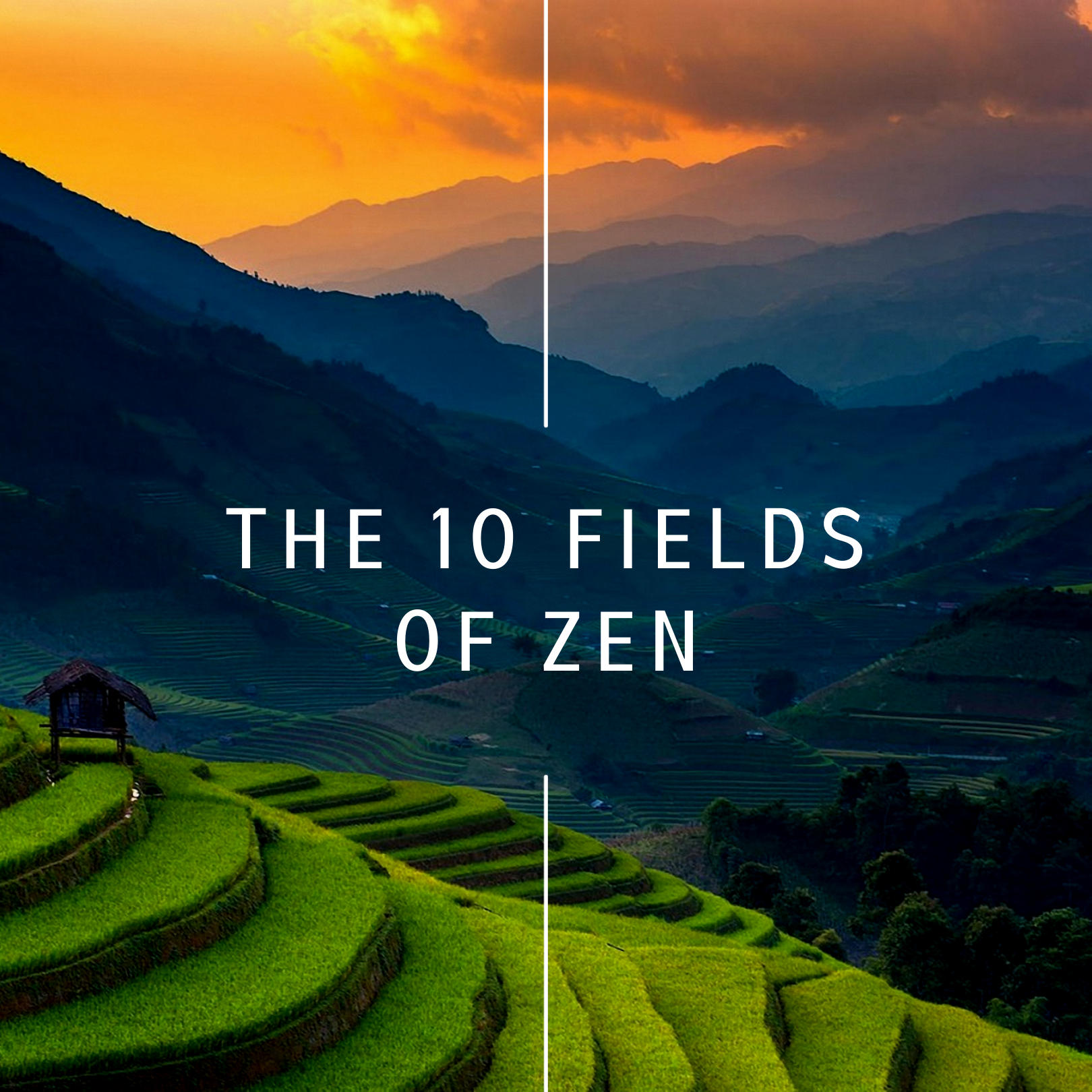
Bright Way ZenDomyo's Ten Fields of Zen - Field 5 - The PreceptsIn this episode Rev. Domyo Burk discusses with the sangha the fifth field in the teaching of her Ten Fields of Zen, The Precepts. Domyo speaks about the The Precepts as our moral guidlines in Zen and how they play a large role in our practice.
2025-12-1544 min
Bright Way ZenThe Importance of Sesshin in Zen PracticeAs Rohatsu Sesshin begins for many Zen Buddhists all over the world, Rev. Domyo Burk discusses Sesshin (a silent multi-day residential retreat), addressing the challenges, and describing why it is important and central to Zen practice
2025-12-1458 min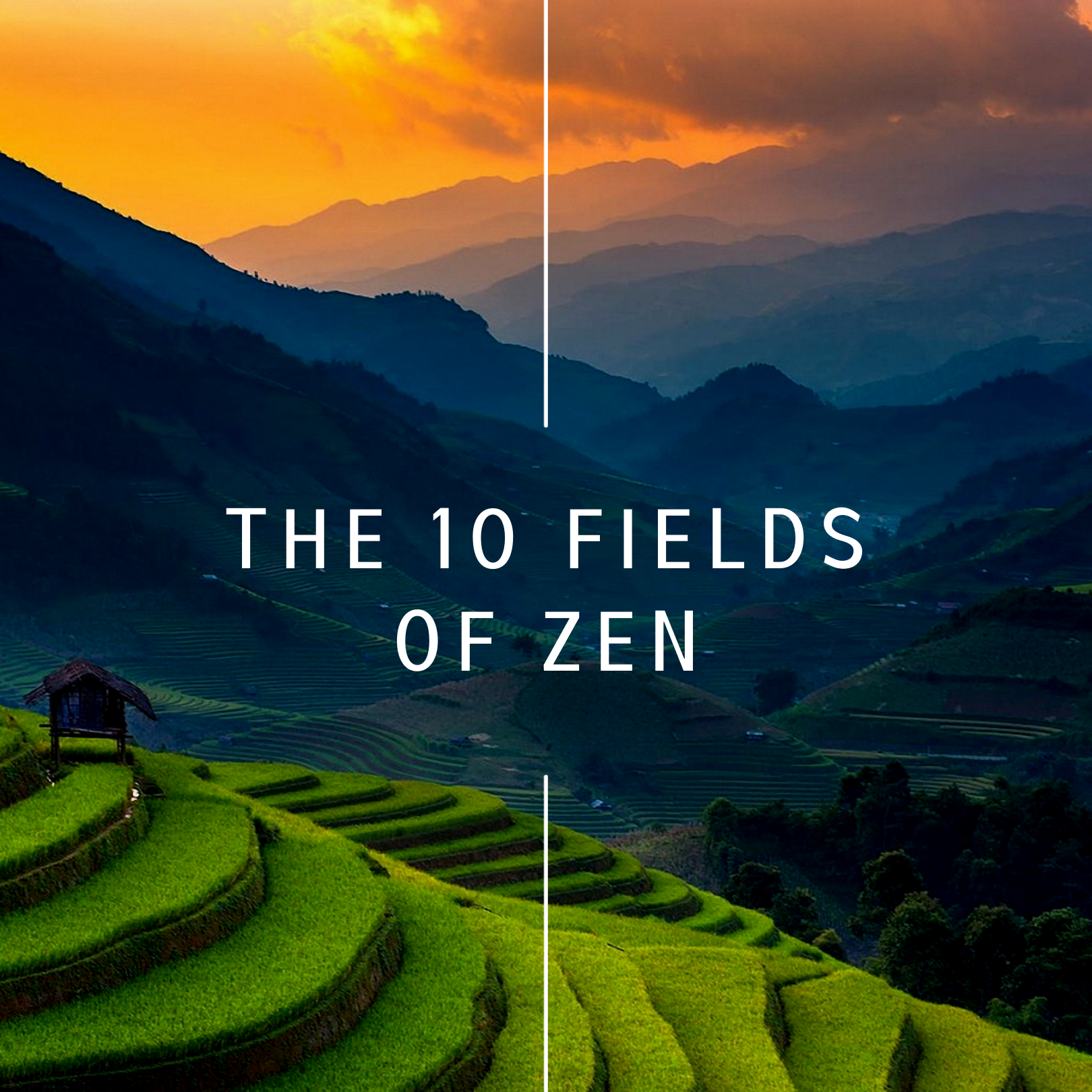
Bright Way ZenThe Ten Fields of Zen - Field 4 - Dharma Study, Wrestling with the TeachingsIn this episode "Dharma Study: Wrestling with the Teachings," Rev. Domyo Burk discusses field 4 in the series on her Ten Fields of Zen - the role that Dharma study and engaging critically with the teachings plays in our practice.
2025-12-1455 min
Bright Way ZenThe Ten Fields of Zen - Field 3 - MindfulnessIn her third field Rev. Domyo Burk discusses the important role of Mindfulness in our Zen practice.
2025-12-1252 min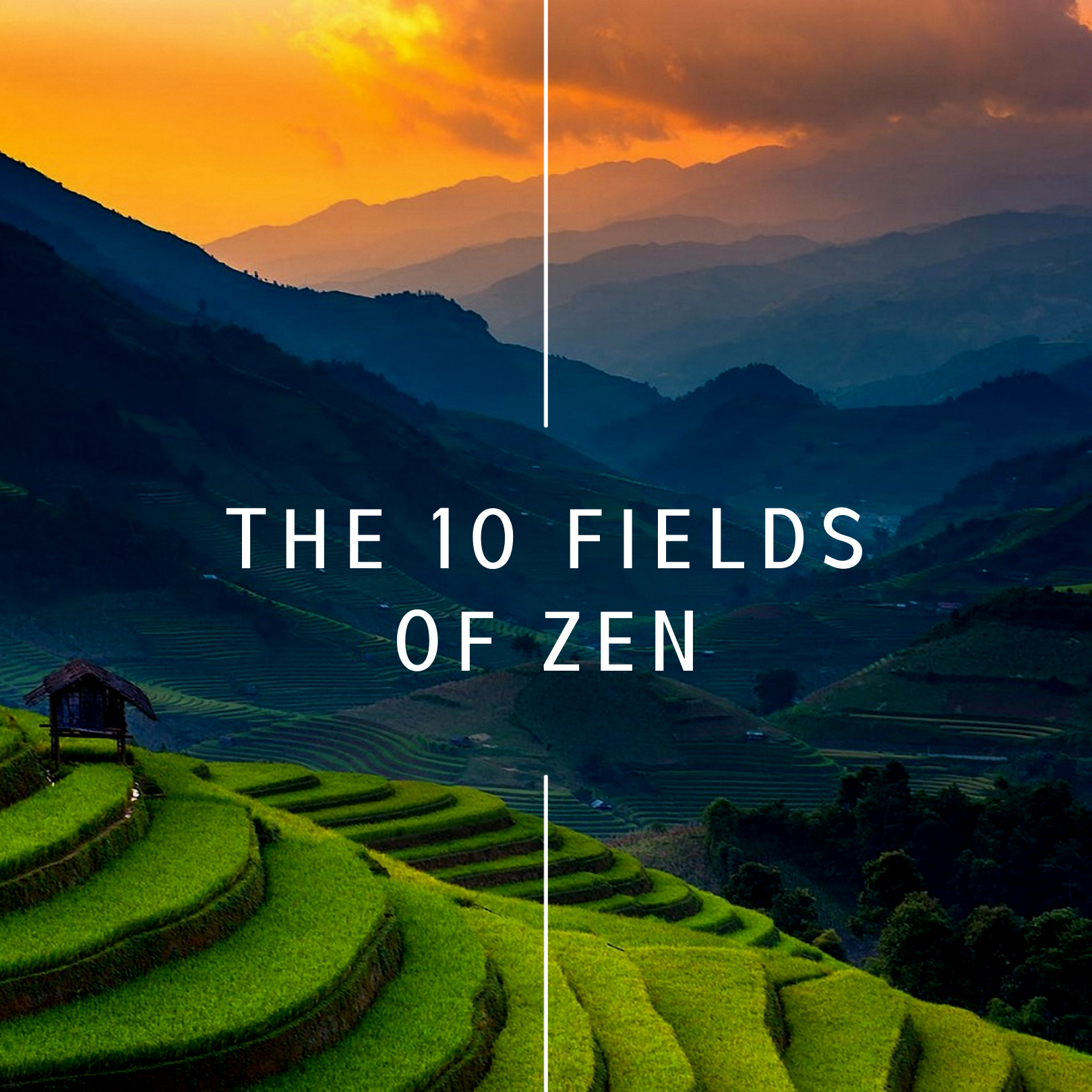
Bright Way ZenThe Ten Fields of Zen - Field 2 - ZazenDuring this class discussion, Rev. Domyo Burk discusses the second field, Zazen, and its role in our practice as Soto Zen Buddhists. This is the third episode in the ongoing series of Domyo Burk's Ten Fields of Zen.
2025-12-1152 min
Bright Way ZenWhen Meditation Is Not EnoughThis Dharma talk, inspired by the regretful story of a dedicated monk who carried significant trauma, but was then instructed by his teacher to "snap out of it – you know how to meditate!", Domyo advises that Zazen and formal Buddhist practices can't completely heal every wound, nor address all different kinds of psychological challenges alone. Three types are outlined, (trauma, attachment wounding, and narcissistic wounding) and we discuss aspects of our practice which can help create a Sangha environment of mutual awareness and care.
2025-12-0952 min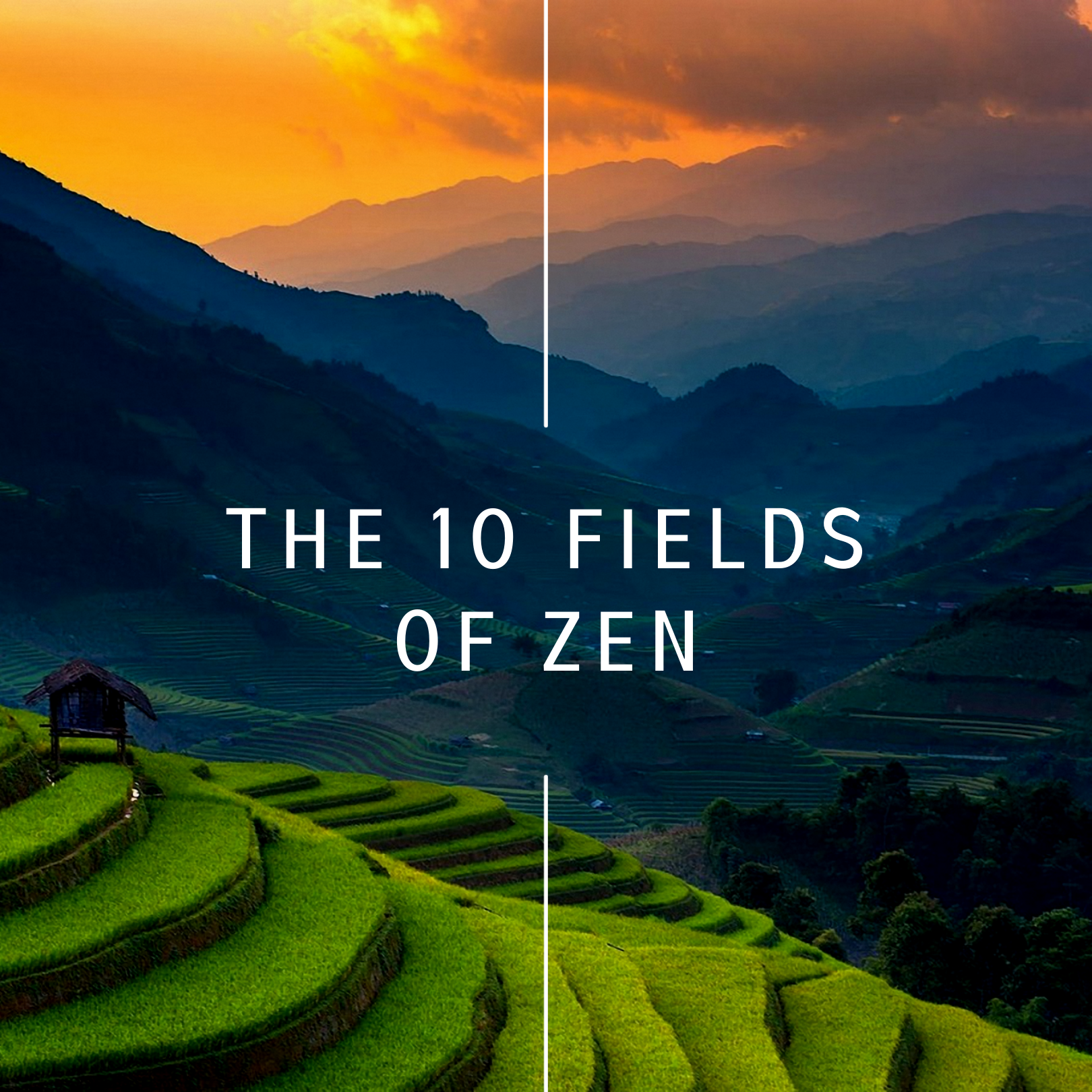
Bright Way ZenThe Ten Fields of Zen - Field 1 - BodhicittaIn this episode, Rev. Domyo Burk continues to lead her Sangha through a fall series of the Ten Fields of Zen, taken from her upcoming book "The Ten Fields of Zen: A Primer for Practitioners". In her first field, she discusses Bodhicitta: The Mind That Seeks The Way - focusing on the practical aspects of how to go about exploring the first field in our everyday lives.
2025-12-0841 min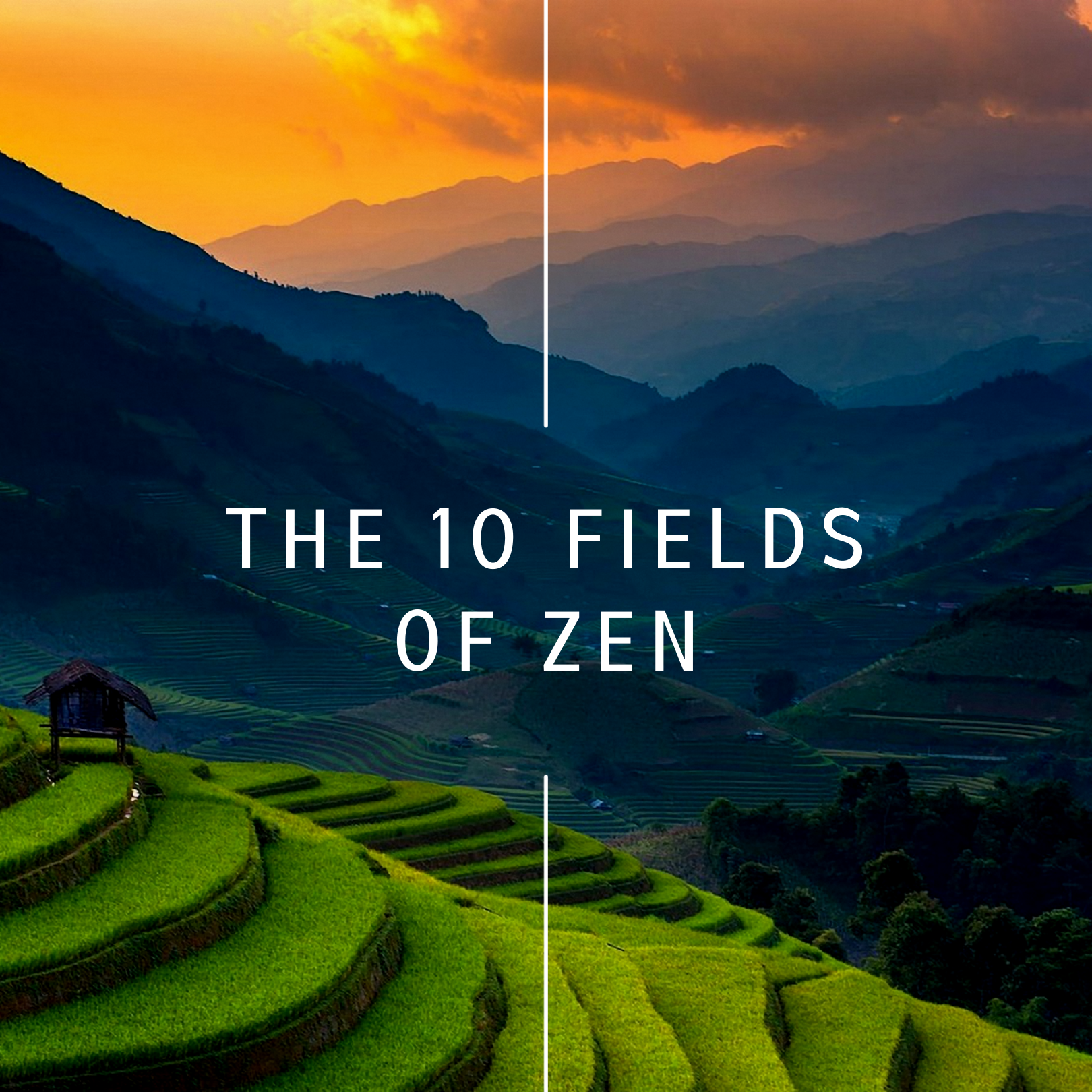
Bright Way ZenDomyo's Ten Fields of Zen - An IntroductionIn this class discussion, Rev. Domyo Burke introcuces her Ten Fields of Zen. Over the next ten weeks she will guide the Sangha through discussions around each of her Ten Fields. Have you ever wanted to be sure you are covering all the essential aspects of Zen practice? Domyo created the Ten Fields of Zen to give you a sense of the potential breadth of your practice and help you envision the many different ways it can manifest: Bodhicitta, Zazen, Mindfulness, Dharma Study, Precepts, Opening Your Heart, Learning the Self, Realization, Bodhisattva Activity, and Connecting w...
2025-12-0656 min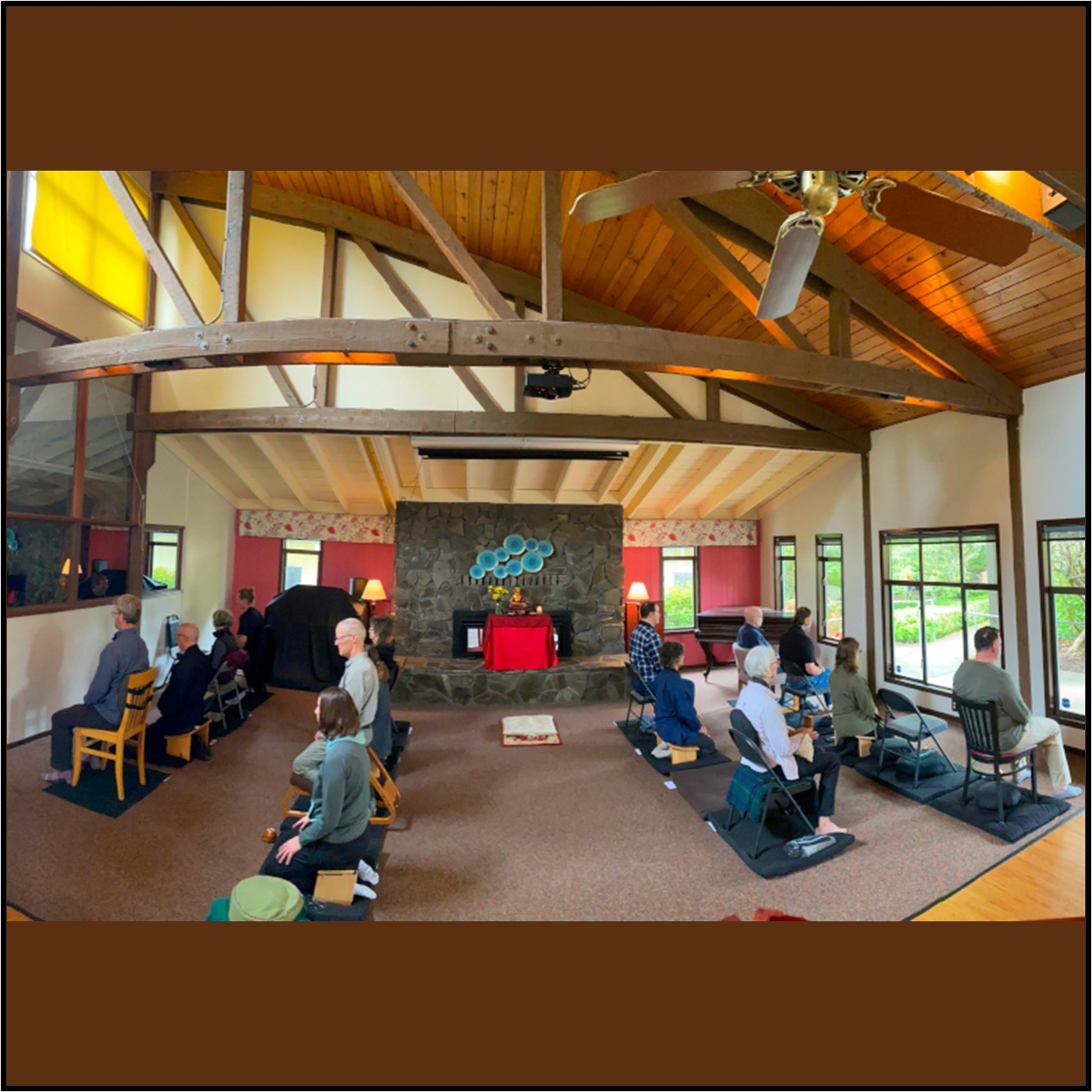
The Zen Studies PodcastTeisho: You Have to See Your NatureThis episode is a Teisho, an encouragement talk that's meant to be listened to while you are sitting quietly. Zen teachers give Teisho during sesshin, and this amounts to a more formal kind of Dharma talk, almost like a meditation. It's not meant to be educational. I'm curious as to how it will come off if you listen to it while walking or driving or doing something else. Maybe it'll be cool. But I recommend sitting still if you're able. Teisho are generally only given during sesshin and not recorded, but I recreated one from the sesshin I led...
2025-05-0128 min
The Zen Studies PodcastOne Reality, Many Descriptions Part 6: Trikaya, the Three Bodies of BuddhaThe teaching of the Trikaya, or Three Bodies of Buddha, is challenging. It may seem to be metaphysical speculation or surprisingly theistic for Buddhism. However, it offers a unique and valuable framing for the mystery of awakening, the palpable presence of the Ineffable despite its ungraspable nature, and the relationship of all phenomena to the Ineffable.
2025-04-2134 min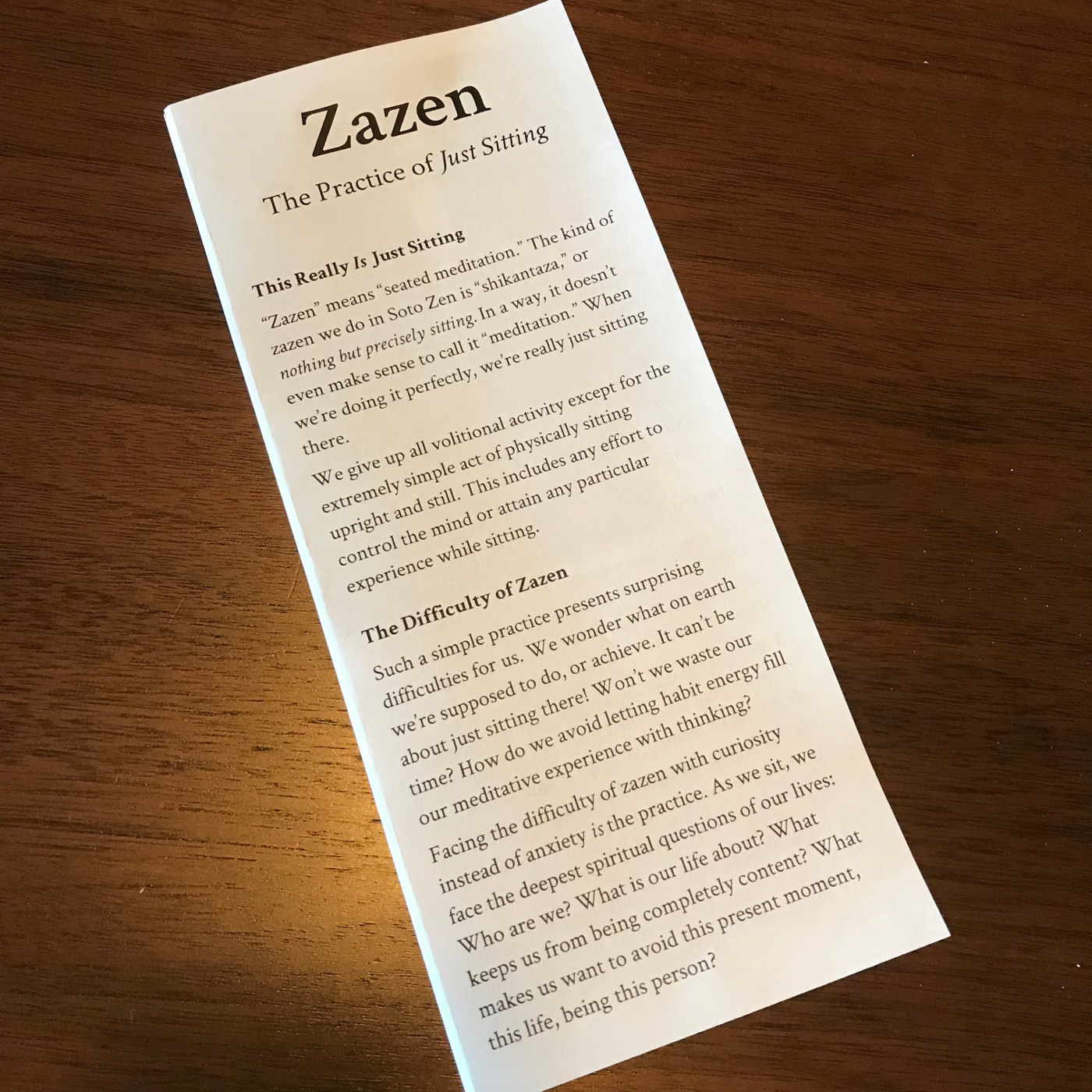
The Zen Studies PodcastQ&A: Revisiting Veganism and Moral Choices, and Questions about ShikantazaIn this extemporaneous question-and-answer episode I address a listener's comment on my answer in a recent Q&A episode about the relationship between Buddhism and eating a plant-based diet. Then I respond to two different questions about the practice of shikantaza, or just sitting.
2025-04-1132 min
The Zen Studies PodcastFraming Your Dharma Practice in a Helpful WayChances are, whether you're aware of it or not, you have a certain way of framing your Dharma practice. That is, you function using a conceptual framework that defines your relationship to your practice, the intent of that practice, and what is supposedly being transformed by that practice. When you're centered in the moment, you can practice without framing, but most of the time you'll be framing things whether you mean to or not. It's good to be conscious of your framing and choose a framing that's helpful.
2025-04-0122 min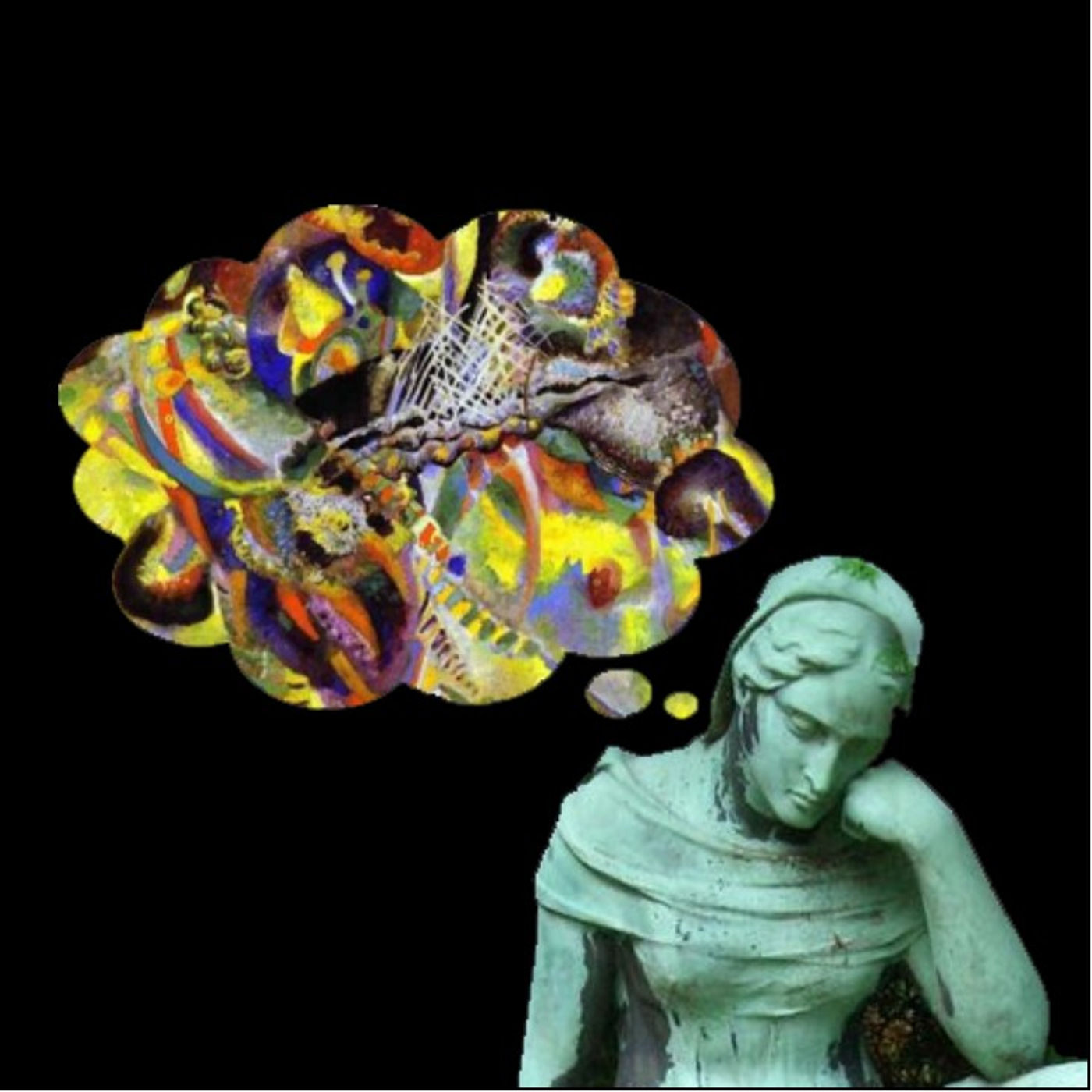
The Zen Studies PodcastInvestigating the Wandering MindAlmost everyone who practices meditation or mindfulness encounters the phenomenon of the wandering mind – when, despite your conscious intention, your mind is filled with thoughts that have nothing to do with your current experience. You can employ various techniques to let go of the thoughts and "bring the mind back" to your meditative object or to the present moment, but often these techniques are applied as if all mind wandering was of the same nature. I investigate different reasons your mind wanders and how they call for different responses.
2025-03-1636 min
The Zen Studies PodcastQ&A: Paramis, Mindfulness, Karma, and EnjoymentThis is an extemporaneous question-and-answer episode. Do you know the difference between a parami and a paramita? Do I still like to think of mindfulness as "undivided presence?" What about when Buddhists use the idea of karma as an excuse not to take compassionate action? Why can't our practice include more activities aimed at the cultivation of joy, creativity, and other positive experiences?
2025-03-0834 min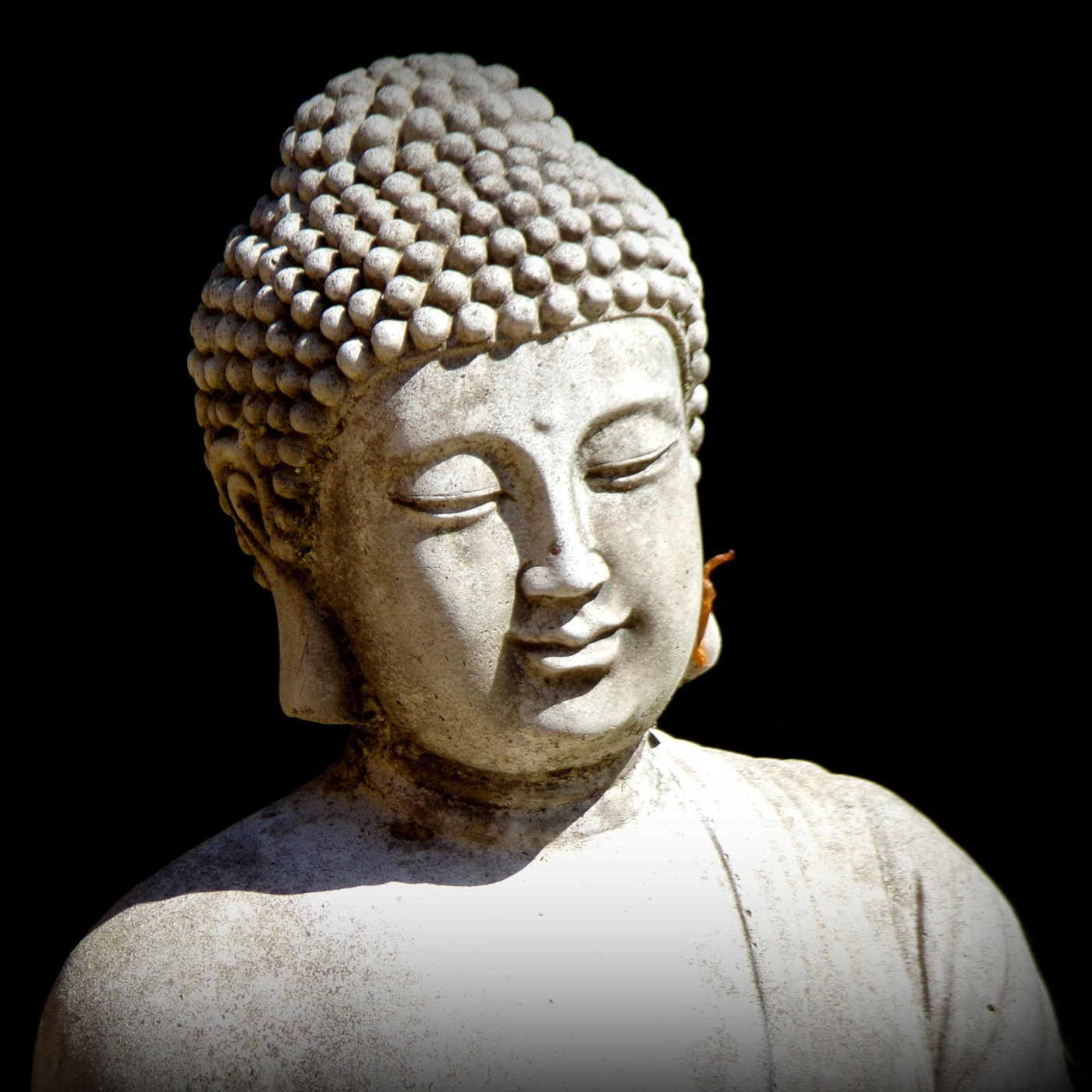
The Zen Studies Podcast295 - The Power of EquanimityEquanimity is a powerful state of being that not only reduces our stress and suffering but also enables us to respond effectively. However, in our efforts to achieve some measure of equanimity, we may end up stuck in the tentative calm of denial or in the coldness of indifference. True equanimity is clear-eyed, undefended, compassionate, and inclusive – but how do we cultivate it? I explore the virtue of equanimity from a Buddhist perspective.
2025-02-2830 min
The Zen Studies PodcastTen Fields of Zen, Field 10 - Connecting with the Ineffable, or What Is Most TrueThe tenth Field of Zen is Connecting with the Ineffable. Zen is not based on a belief in God in a theistic sense. However, at its core there is a strong emphasis on a much more profound, inspiring, significant, and hopeful Reality than the bleak, mundane, and discouraging one people sometimes experience in their ordinary daily lives. Call this "greater reality" anything you like – God, the Divine, That Which is Greater, Other Power, the Ineffable, the Great Mystery, the Great Matter of Life and Death – but you have tasted it at peak moments of your life. Zen encourages you to e...
2025-02-1835 min
The Zen Studies PodcastQ&A: Veganism, Letting Thoughts Go, and Motivation for ActionIn this episode I extemporaneously answer questions listeners have submitted by email, including: Why aren't Buddhist vegan if the first moral precept is "do not kill?" What does it really mean to "let go" of a thought? And: Isn't taking action - including compassionate action - always the result of being dissatisfied in some way?
2025-02-0826 min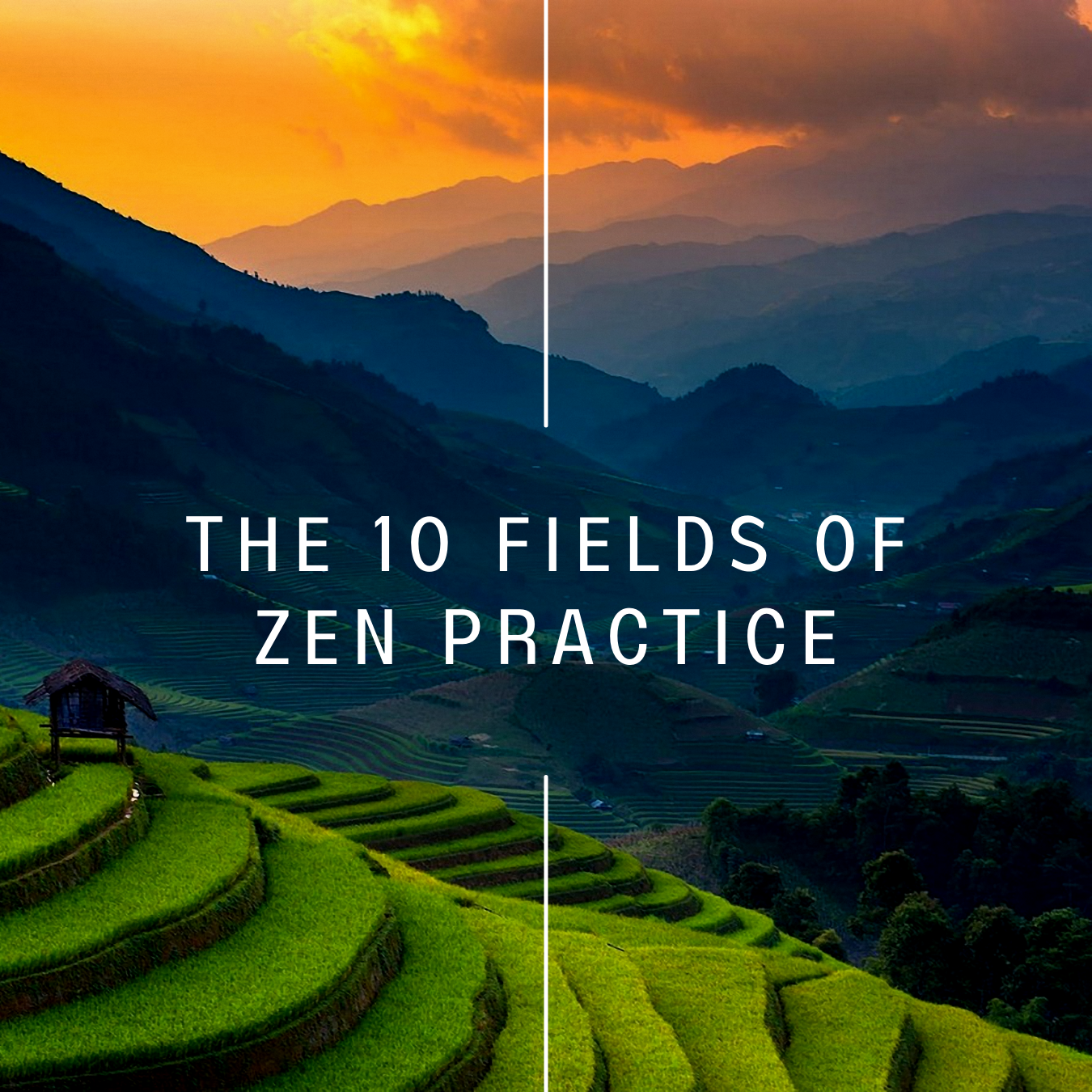
The Zen Studies Podcast292 - Ten Fields of Zen, Field 9 – Bodhisattva Activity: Enacting Vows to Benefit All BeingsBodhisattva Activity is enacting vows to free all beings as well as yourself. This is an acknowledgment that you are interdependent with all beings and things, and such an aspiration can give a sense of purpose and direction to your whole life. Of course, it's impossible to fulfill this vow literally, and when you try to put it into action it is no easy matter! It requires tangible engagement with the world, including other people. If you hide out in comfort, you're unlikely to transcend self-centeredness. If you rely only on your own resources, you're likely to exhaust yourself...
2025-02-0135 min
The Zen Studies Podcast291 - Keizan's Denkoroku Lead Chapter: Shakyamuni's "I and All Beings"In Episode 272, I discussed the third chapter of Zen Master Keizan's book The Denkoroku, or the Record of the Transmission of Illumination. In the interest of thoroughness, I figured I'd start back at chapter one, with Shakyamuni Buddha's "I and All Beings." This text explores the nature of enlightenment and the tension between individuality and non-separation.
2025-01-1743 min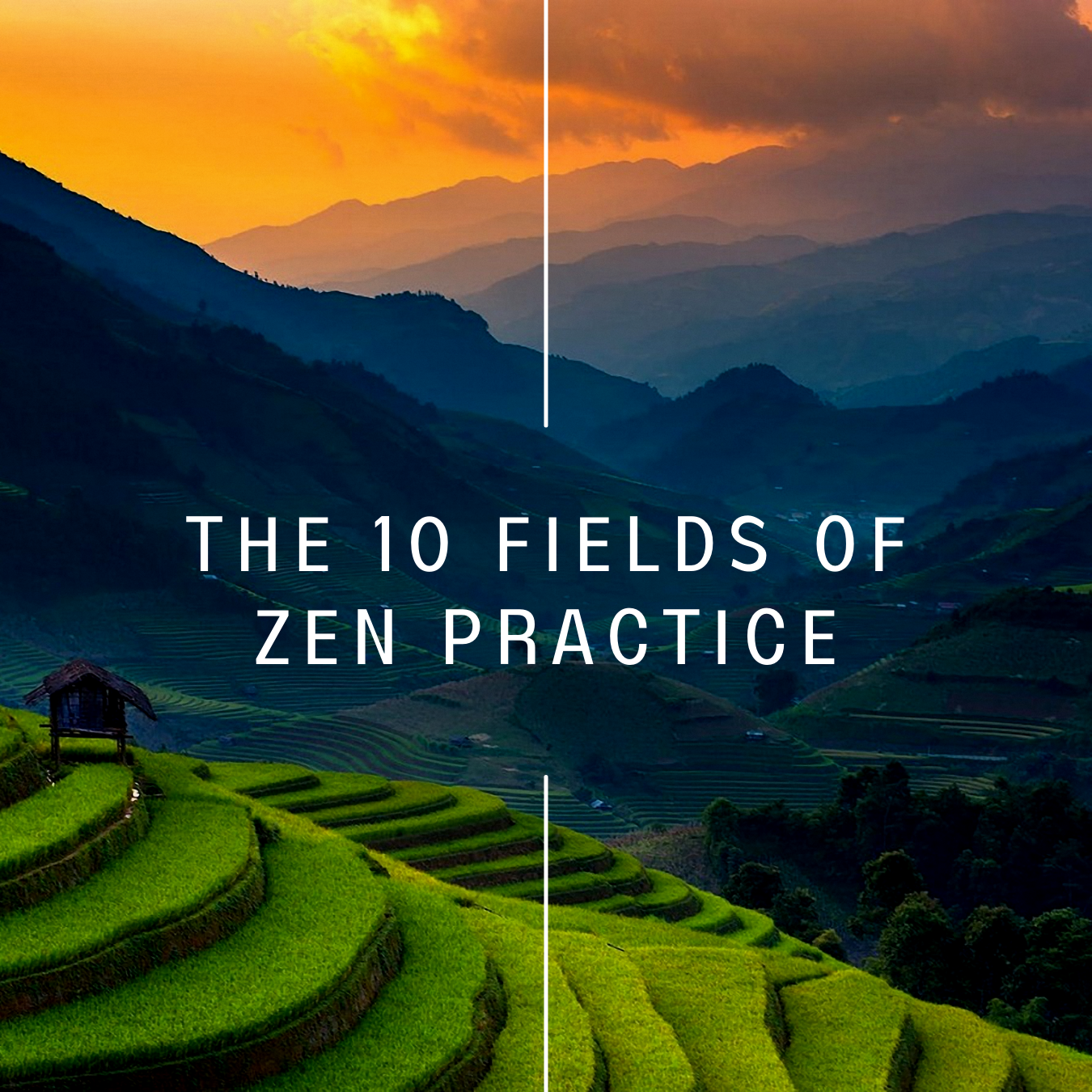
The Zen Studies PodcastTen Fields of Zen, Field 7 – Realization: Direct Experience of Reality-with-a-Capital-RThe eighth Field of Zen Practice is Realization, gaining a direct, personal experience of the truth. Realization helps you respond appropriately, allowing you to live by choice instead of by karma. Even more importantly, it gives you a larger perspective that can result in equanimity, even joy. There are different levels of truth, and the Dharma – Reality-with-a-Capital-R – is the biggest truth of all. Fortunately, it is a wonderful and liberating truth to wake up to. However, it's important to understand that there is no "Realization" you can attain that means you know everything. The truth is infinite and there is a...
2024-12-2938 min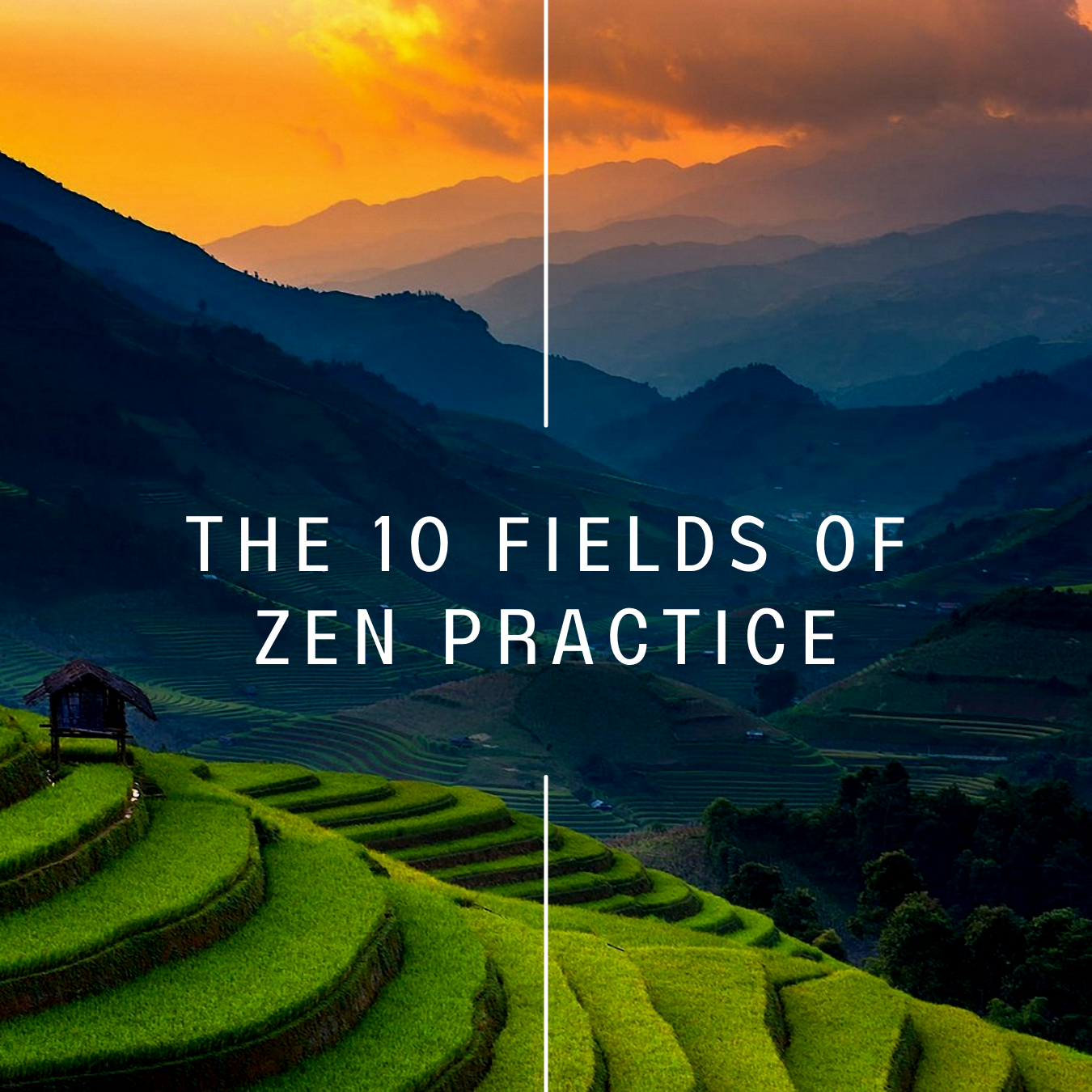
The Zen Studies PodcastTen Fields of Zen, Field 6 – Opening Your Heart: Self-Acceptance and Non-Separation (2 of 2)This episode is the second half of the seventh chapter of my book-in-progress, The Ten Fields of Zen: A Primer for Practitioners. Listen to/read the previous episode (288) first, where I talk about the importance of Opening Your Heart and how that effort is viewed in the Buddhist tradition. In that episode I also discussed the four Brahmaviharas – goodwill, compassion, sympathetic joy, and equanimity. I finish the chapter in this episode by covering self-acceptance, practicing with the real, human relationships in your life, and Opening Your Heart in Sangha.
2024-12-1931 min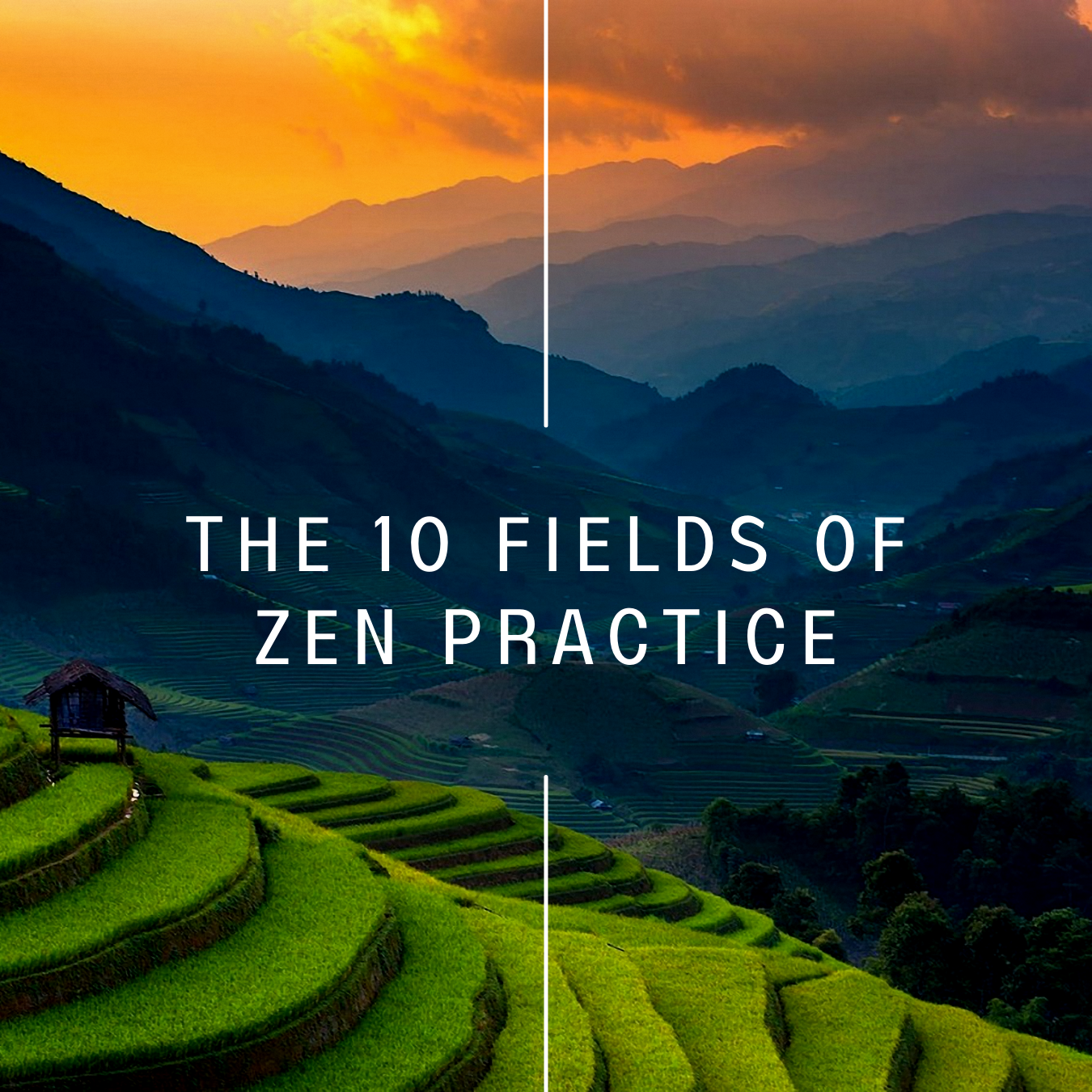
The Zen Studies Podcast10 Fields of Zen, Field 7 – Opening Your Heart: Self-Acceptance and Non-Separation (1 of 2)The seventh Field of Zen Practice is Opening Your Heart. Working explicitly to open your heart not only benefits other living beings, it puts you in accord with the Dharma and supports all other aspects of your practice. You work on radical self-acceptance to make Awakening and compassion possible. You work on real and personal relationships with other beings – overcoming your social fears, becoming more willing to be seen and known, learning to be authentic, and recognizing the Buddha-Nature manifested in others. Ultimately, self and other are not separate; in practice, you seek to manifest and realize this simultaneously.
2024-11-2936 min
The Zen Studies PodcastA Few Useful Teachings for Tumultuous TimesIn a time of political divisiveness, many of us look to the three treasures of Buddha, Dharma, and Sangha for solace, strength, and guidance. I offer a few Dharma teachings I have found useful for practicing in tumultuous times.
2024-11-2511 min
The Zen Studies PodcastEnding Dukkha: Taking Care of this Precious Life (2 of 2)In the last episode, I offered seven points about the role of Dukkha in our life and practice and discussed the first five points. In this episode I'll finish the discussion with point #6: Buddhism offers a holistic approach to alleviating Dukkha, including maximizing our overall spiritual health, working with our karma, and curing its ultimate cause, and point #7: Even when our Dukkha is not extreme, it is a sign of lingering false views, so we continue to pay close attention to it and seek to end it.
2024-11-1727 min
The Zen Studies PodcastEnding Dukkha: Taking Care of this Precious Life (1 of 2)While physical and emotional pain, discomfort, and longing are an inevitable part of human life, Dukkha is existential angst we add to such experiences, ranging from subtle uneasiness to acute anguish. It drives our unhealthy or harmful behaviors, so we seek to end Dukkha for the sake of self and others. Buddhism offers a holistic approach to doing this, including maximizing our overall spiritual health and working with our karma. However, Buddhism's radical teaching is that Dukkha is a symptom of underlying spiritual illness caused by false views - so, through practice, our spiritual illness can be cured, and...
2024-11-0124 min
The Zen Studies PodcastReflections on Continuous Practice and Dogen's "Gyoji" (2 of 2)It's challenging to make our Dharma practice continuous – maintaining awareness and appropriate conduct each moment of our lives. In his essay Gyoji, or "Continuous Practice," Zen Master Dogen doesn't offer practical tips for mindfulness and pure conduct in everyday life, but instead challenges our limited ideas about what practice is. In this episode (part 2), I continue discussing four points I think Dogen makes about Gyoji.
2024-10-2523 min
The Zen Studies PodcastReflections on Continuous Practice and Dogen's "Gyoji" (1 of 2) Our goal in practice is to live in accord with the truth, or the Dharma - not only while sitting in meditation or studying Buddhism, but every moment of our lives. In other words, we strive to make our practice continuous. It can be extremely challenging to maintain mindfulness and good behavior all the time. How can we make our practice more continuous? Not surprisingly, in his essay "Gyoji," or Continuous Practice, Dogen does not give us practical tips but instead challenges our limited ideas about what practice is.
2024-10-0230 min
The Zen Studies PodcastCutting Moral Corners: Is Buddhism Compatible with 21st-Century Life? (2 of 2)This is part two of my discussion "Cutting Moral Corners: Is Buddhism Compatible with 21st-Century Life?" In Part 1 I talked about the moral stress that arises from living a modern life, where almost every decision we make becomes a moral choice. I discussed how home leaving – or monasticism – was early Buddhism's prescription for avoiding moral stress, and then how the Mahayana bodhisattva ideal become a model for lay practice. In this episode I address the matter of moral stress and how we might practice in the midst of it in order to free ourselves from dukkha, or suffering.
2024-09-2121 min
The Zen Studies PodcastCutting Moral Corners: Is Buddhism Compatible with 21st-Century Life? (1 of 2)As long as we remain engaged in 21st-century life, at least in any industrialized society, we are part of an infinitely complex web of karma that covers our planet. Even the details of our lives become moral choices, and it becomes increasingly difficult to live in a way that does no harm or that fulfills the ideal of the selfless Buddhist contemplative. Because of our interconnectedness with all things, we feel pain and moral stress when we act out of accord with our ideals. What does lay Buddhist practice look like in the midst of all of this?
2024-09-1226 min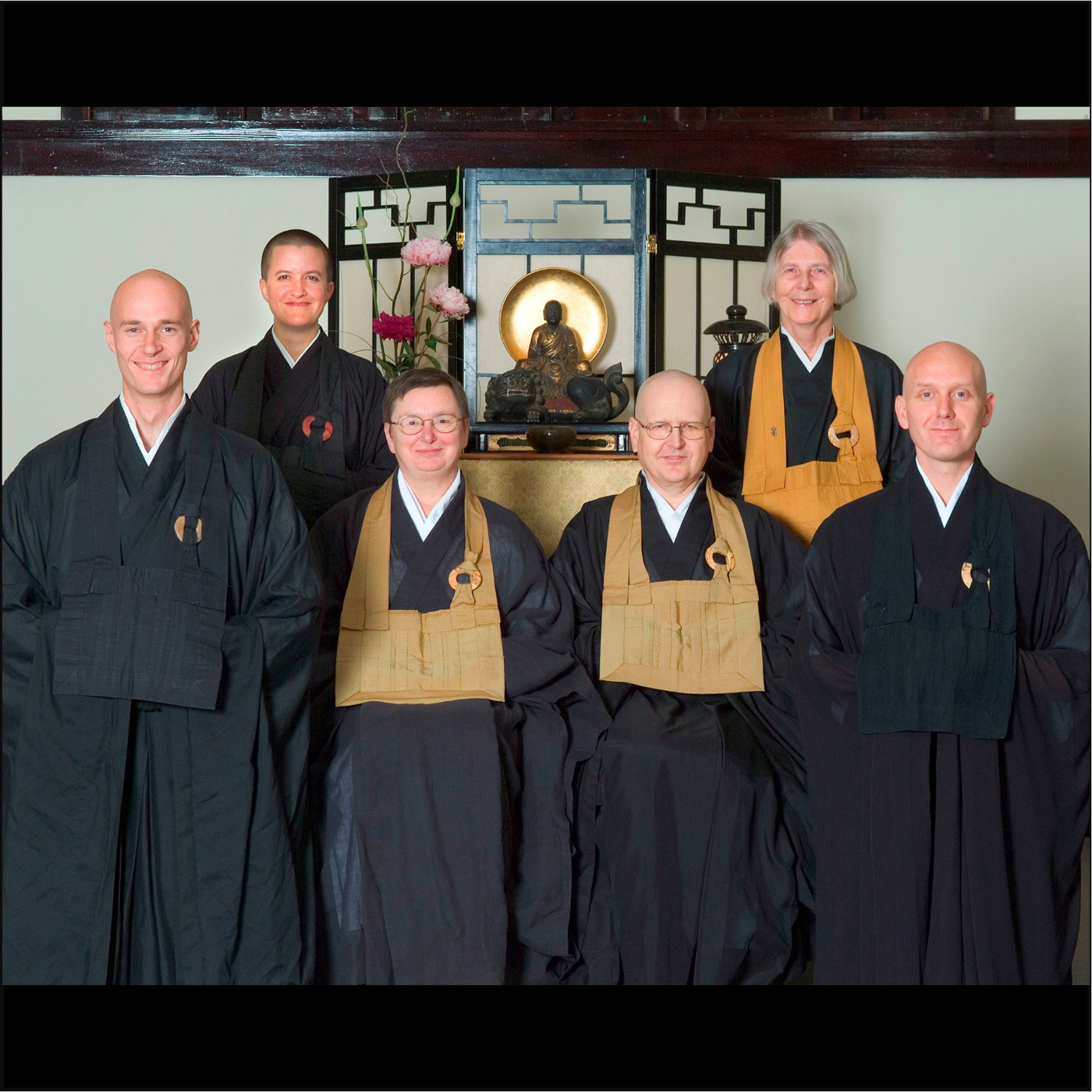
The Zen Studies PodcastStories of My Teachers - A Live Talk*In a lineage tradition like Zen, your understanding, manifestation, and expression of the Dharma is deeply influenced by your teachers, and by their teachers. Whether you are a member of my Zen Center, Bright Way Zen, or a fan of this podcast, you may appreciate stories of my teachers Kyogen and Gyokuko Carlson in this live talk.* (*Most of my episodes are produced specifically for podcast listeners, but I am on sabbatical in August.)
2024-08-2844 min
The Zen Studies Podcast279 - Talking about Politics as a Buddhist - A Live Talk*I am on sabbatical for the month of August, so this is a recent live talk* I gave at Bright Way Zen. This is, of course, a very timely topic with a major election coming up in the U.S. in just over two months. If politics is "the set of activities that associated with making decisions in groups, or other forms of power relations among individuals, such as the distribution of resources or status, none of us are able to opt out of politics. How can we engage in conversations about what we should do as a group...
2024-08-2225 min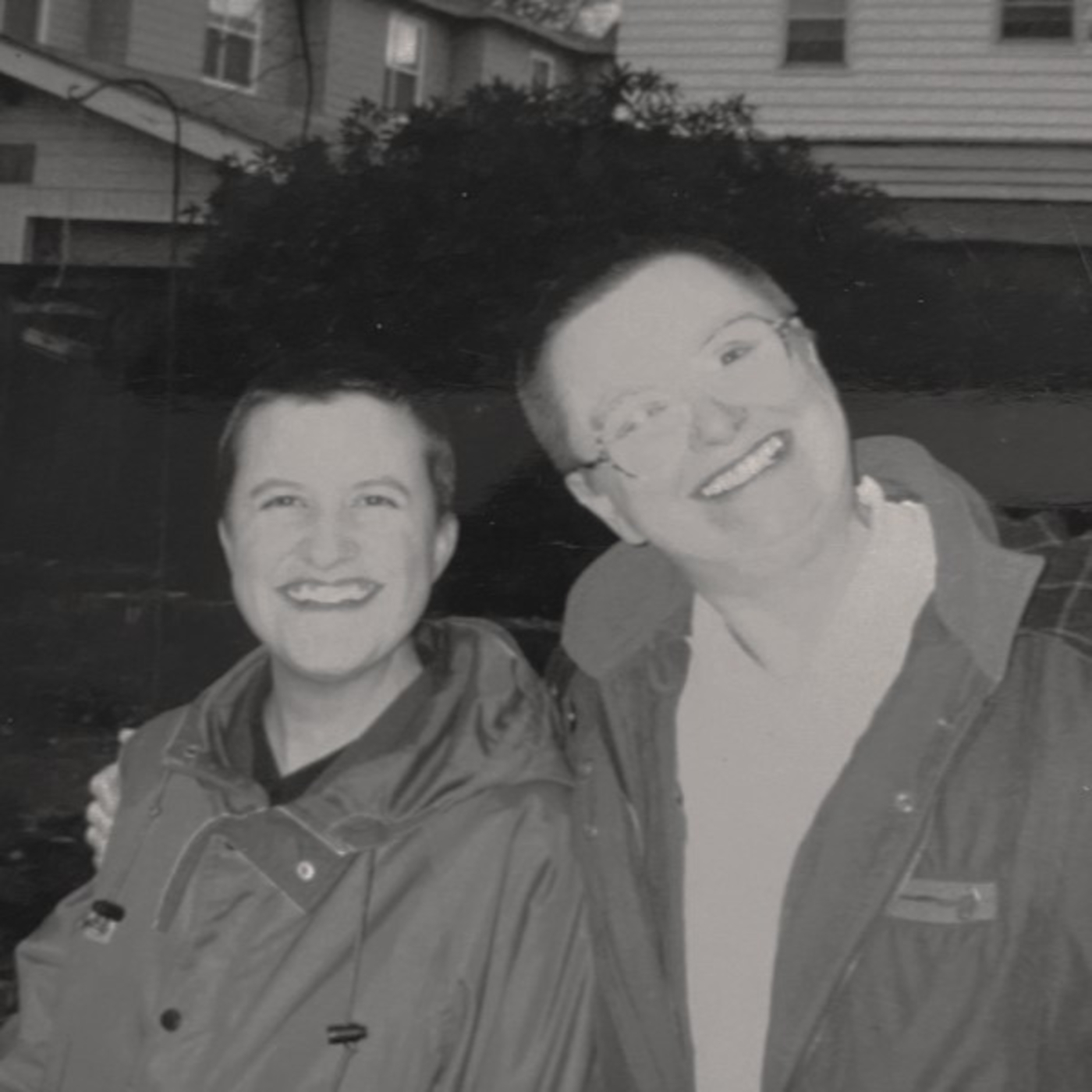
The Zen Studies Podcast278 - Having a Zen Teacher - An Live Talk*I'm on sabbatical the month of August, so this episode is an informal, live talk* I gave in response to a question: "Is everything a Zen teacher does a 'teaching'? How do you know?" This led to discussion of other topics as well, related to having a formal relationship with a Zen teacher - What does it mean? What does it look like? Why would someone want this? (*Most of my episodes are produced specifically for podcast listeners.)
2024-08-0840 min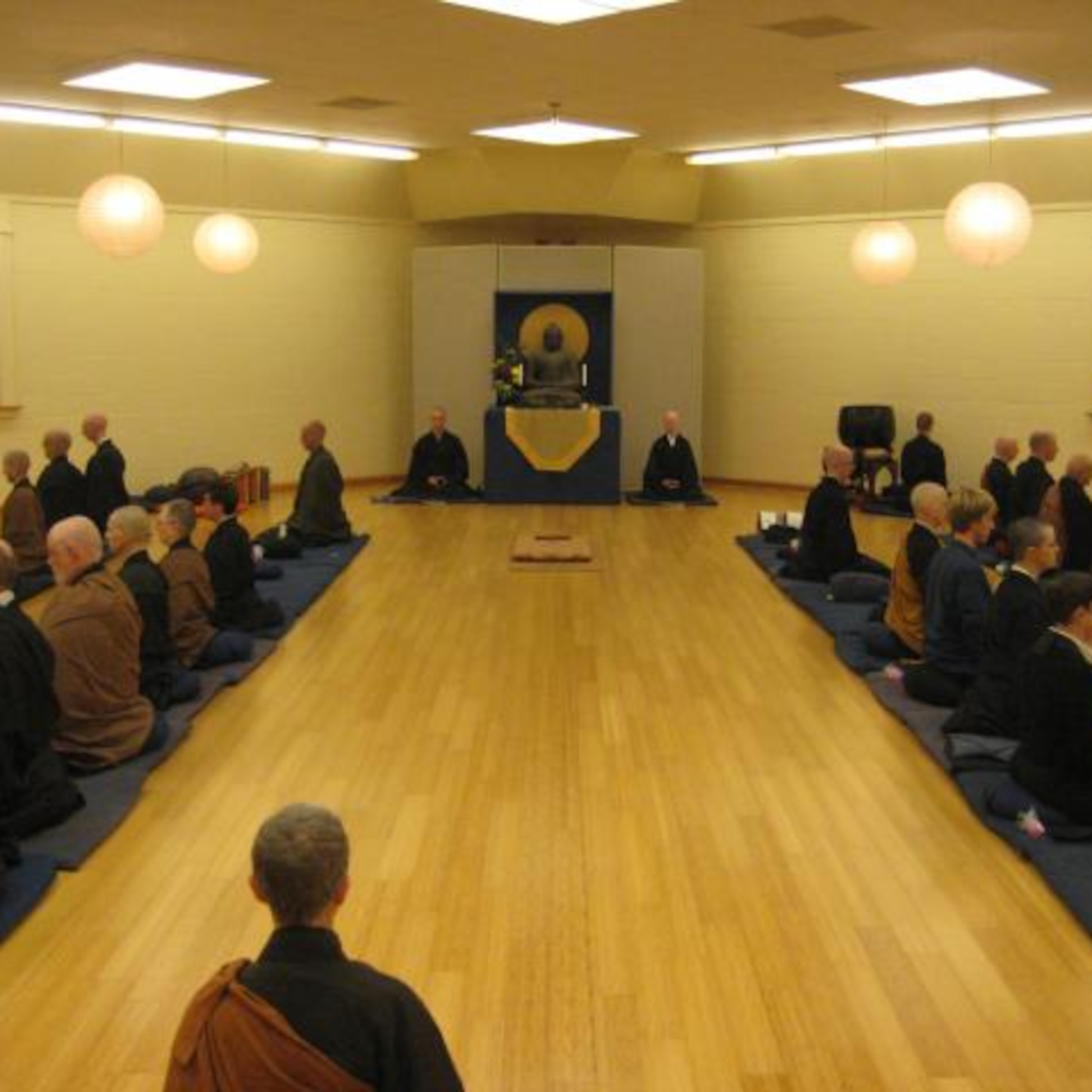
The Zen Studies PodcastMy Sesshin (2 of 2)In this episode and the previous one, I do something radical and share my experience of a sesshin I recently attended, describing it day by day. There are many reasons not to do this, and I went into those reasons in the last episode (part one), where I also described my first two full days of retreat. In this episode I describe days 3-5 and make some closing remarks.
2024-08-0128 min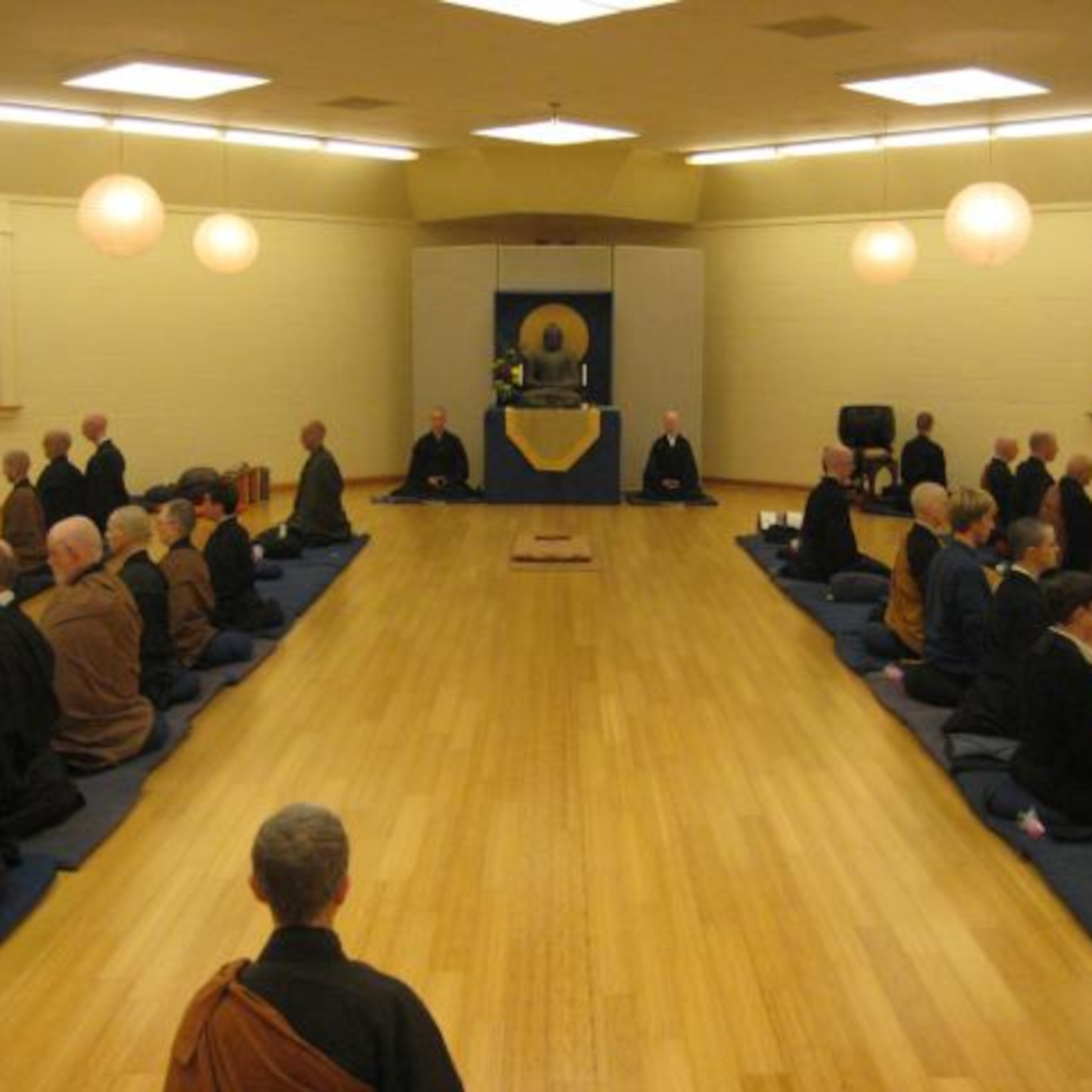
The Zen Studies PodcastMy Sesshin (1 of 2)In this episode I'm going to do something radical and share with you my experience of the sesshin I attended last week, describing it day by day. There are many reasons not to do this, which I will go into. I certainly don't intend to do it again. Still, despite my misgivings I thought it might be helpful for you to get an insight into what a sesshin is like for another person. In this episode I get through the first couple days of the retreat, and I will finish my story in the next episode.
2024-07-2824 min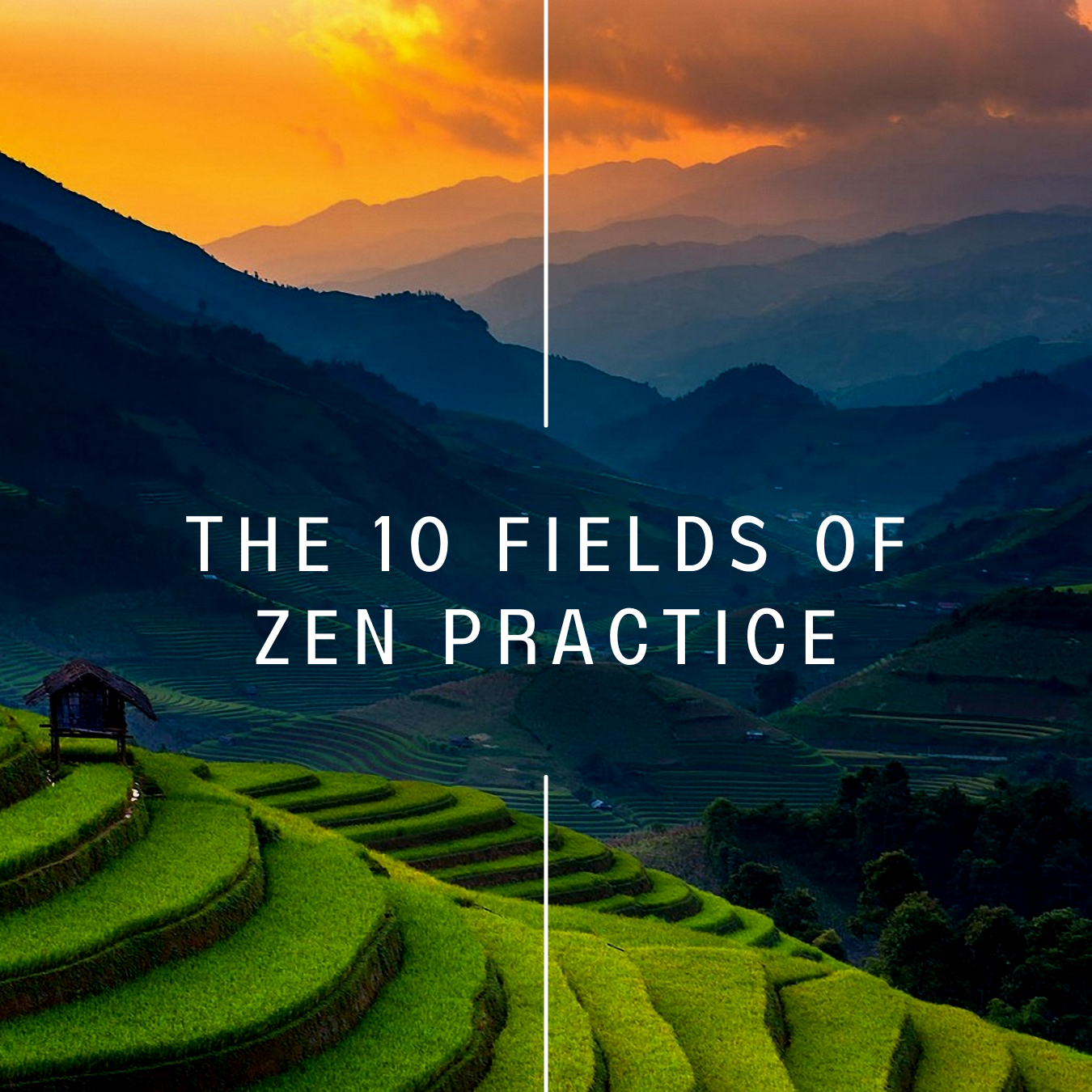
The Zen Studies PodcastTen Fields of Zen, Field Five – Precepts: Transcending Self-Attachment (3 of 3)This episode is the third installment of chapter five of my book-in-process, The Ten Fields of Zen: A Primer for Practitioners. In the first episode, I described the central role of Precepts in Zen and covered the Three Refuges, Three Pure Precepts, and two of the Grave Precepts. In the last episode, I talked about the Grave (serious, or weighty) Precepts 3-8. In this episode, I'll discuss Grave Precepts nine and ten, and talk about how we work with Precepts.
2024-07-1320 min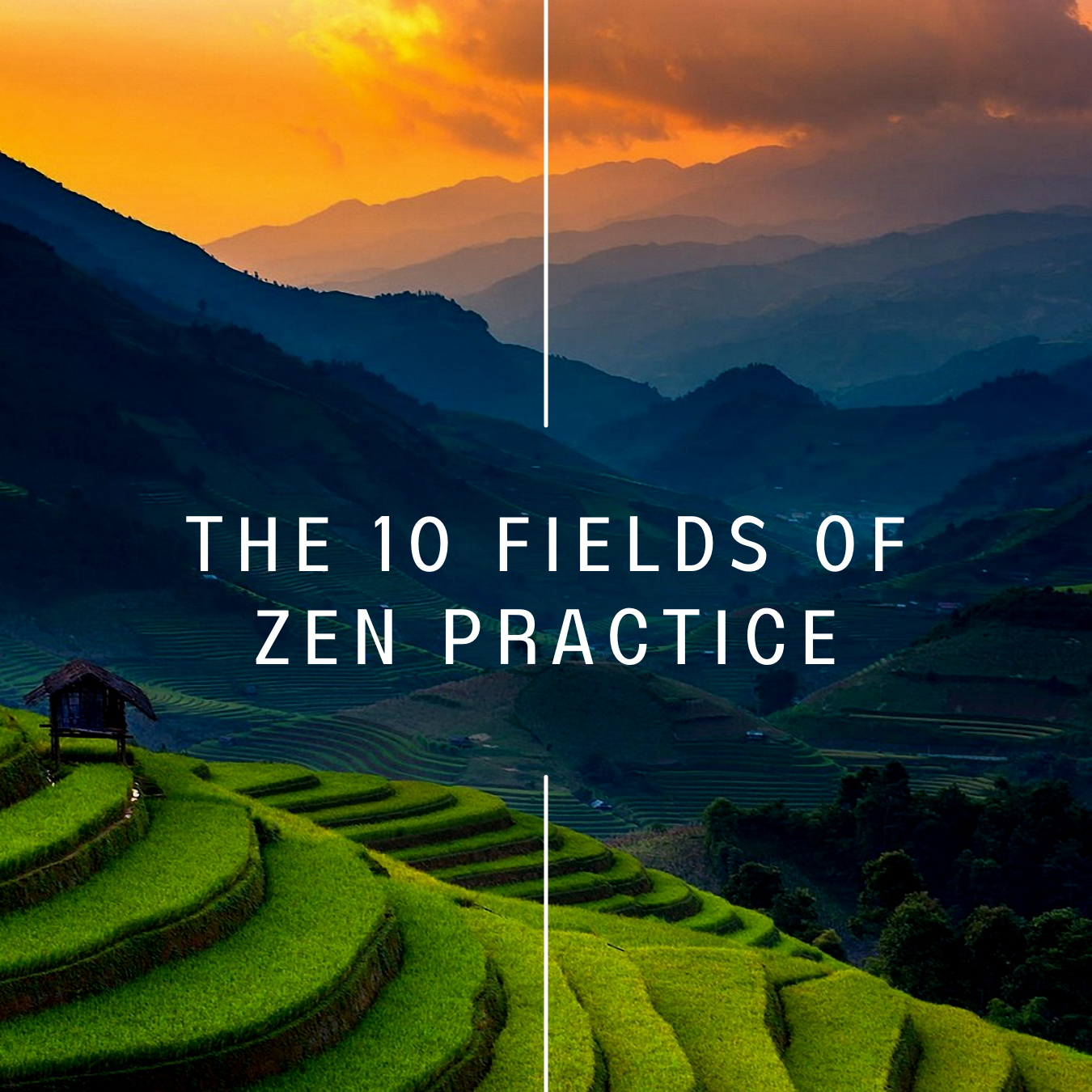
The Zen Studies PodcastTen Fields of Zen, Field Five – Precepts: Transcending Self-Attachment (2 of 3)This episode is the second part of chapter five of my book-in-process, The Ten Fields of Zen: A Primer for Practitioners. In the last episode, I described the central role of Precepts in Zen and covered the Three Refuges, Three Pure Precepts, and two of the Grave Precepts. In this episode, I talk about the Grave (serious, or weighty) Precepts three through eight. In the next episode, I'll discuss Grave Precepts nine and ten, and talk more about how we work with Precepts.
2024-06-2825 min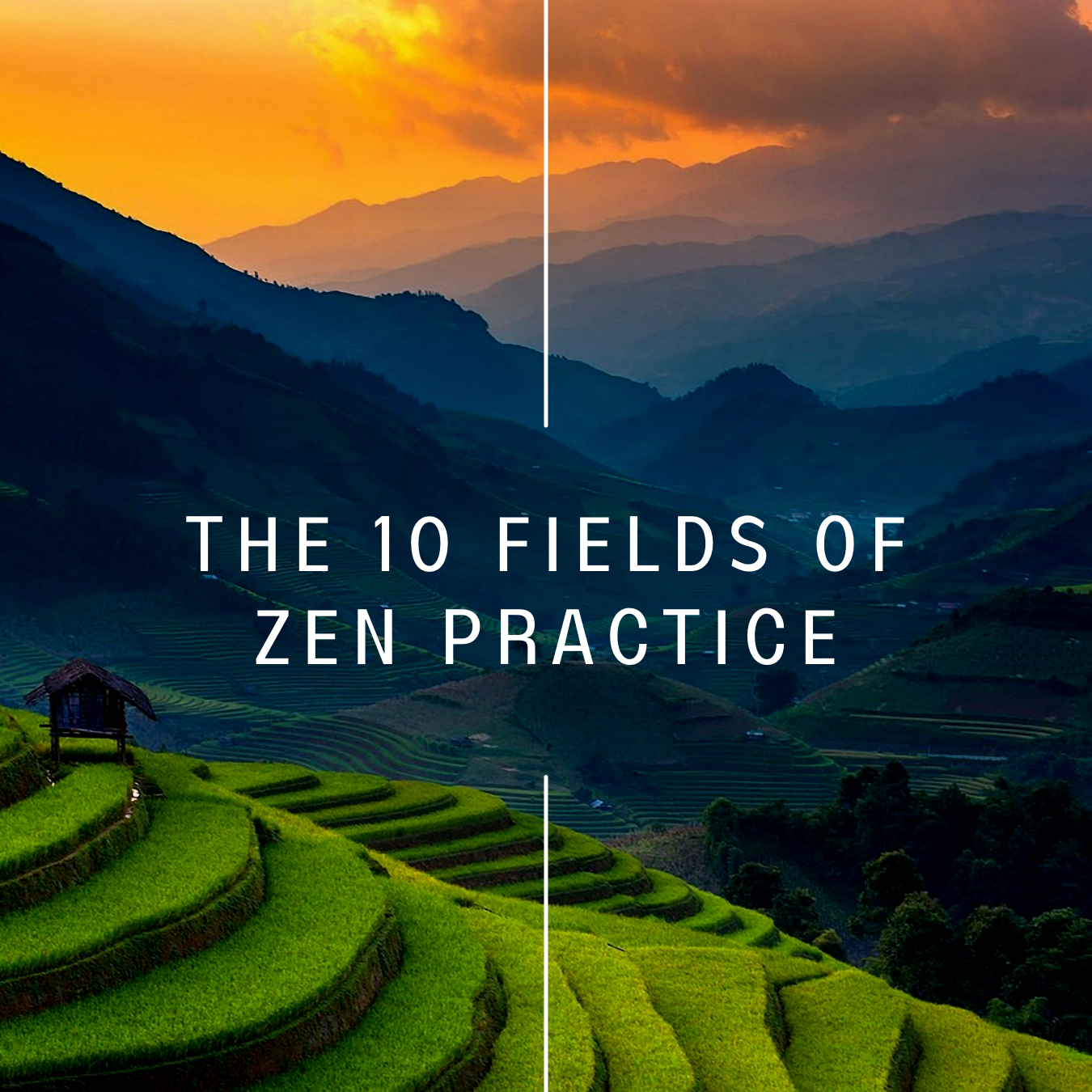
The Zen Studies Podcast273 - Ten Fields of Zen, Field Five – Precepts: Transcending Self-Attachment (1 of 3)The fifth Field of Zen Practice is living according to moral Precepts. The Buddhist precepts guide our ethical conduct, ensuring we minimize the harm we do to self and others. Such conduct is a prerequisite for the peace of mind we need for spiritual practice. The precepts also serve as valuable tools for studying the self; when we are tempted to break them, it alerts us to our self-attachment and reveals our persistent delusion of self as a separate and inherently-existing entity. Keeping the precepts familiarizes us with acting as if the self is empty of inherent existence. This e...
2024-06-2627 min
The Zen Studies PodcastKeizan's Denkoroku Chapter 3: Ananda and the FlagpoleAccording to Zen master Keizan's Denkoroku, Ananda spent 20 years at the Buddha's side. He had a perfect memory, understood all the teachings, was an impeccable practitioner, and attained arhatship. Despite this, the Buddha made Kashyapa his Dharma heir, and Ananda spent another 20 years practicing with Kashyapa. Finally, Ananda asked Kashyapa, "What am I missing?" This chapter of the Denkoroku discusses their subsequent exchange and Ananda's long-awaited awakening.
2024-06-1932 min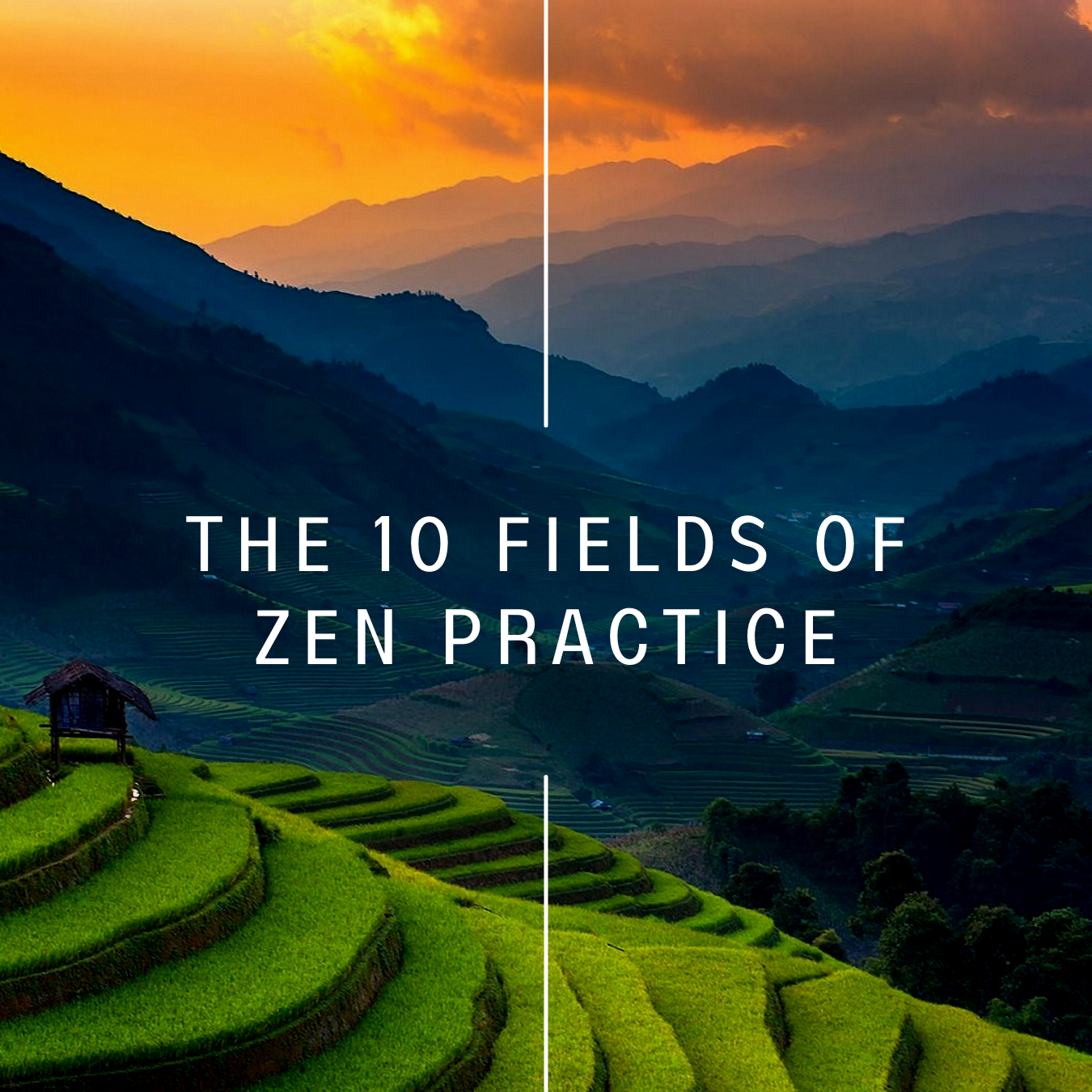
The Zen Studies Podcast271 - Ten Fields of Zen, Field Four - Dharma Study: Wrestling with the Teachings (2 of 2)This episode and the last, "Dharma Study: Wrestling with the Teachings," comprise chapter four of my book, The Ten Fields of Zen Practice: A Primer for Practitioners. In the last episode, Part 1, I talked about the value of Dharma Study and how best to approach it. Then I discussed how to go about deciding what you want to study. In this episode I offer a list of eight fundamental teachings I recommend becoming familiar with, along with suggested texts to begin your investigation of each topic. I'll end with a discussion of how to engage the teachings you study...
2024-05-3027 min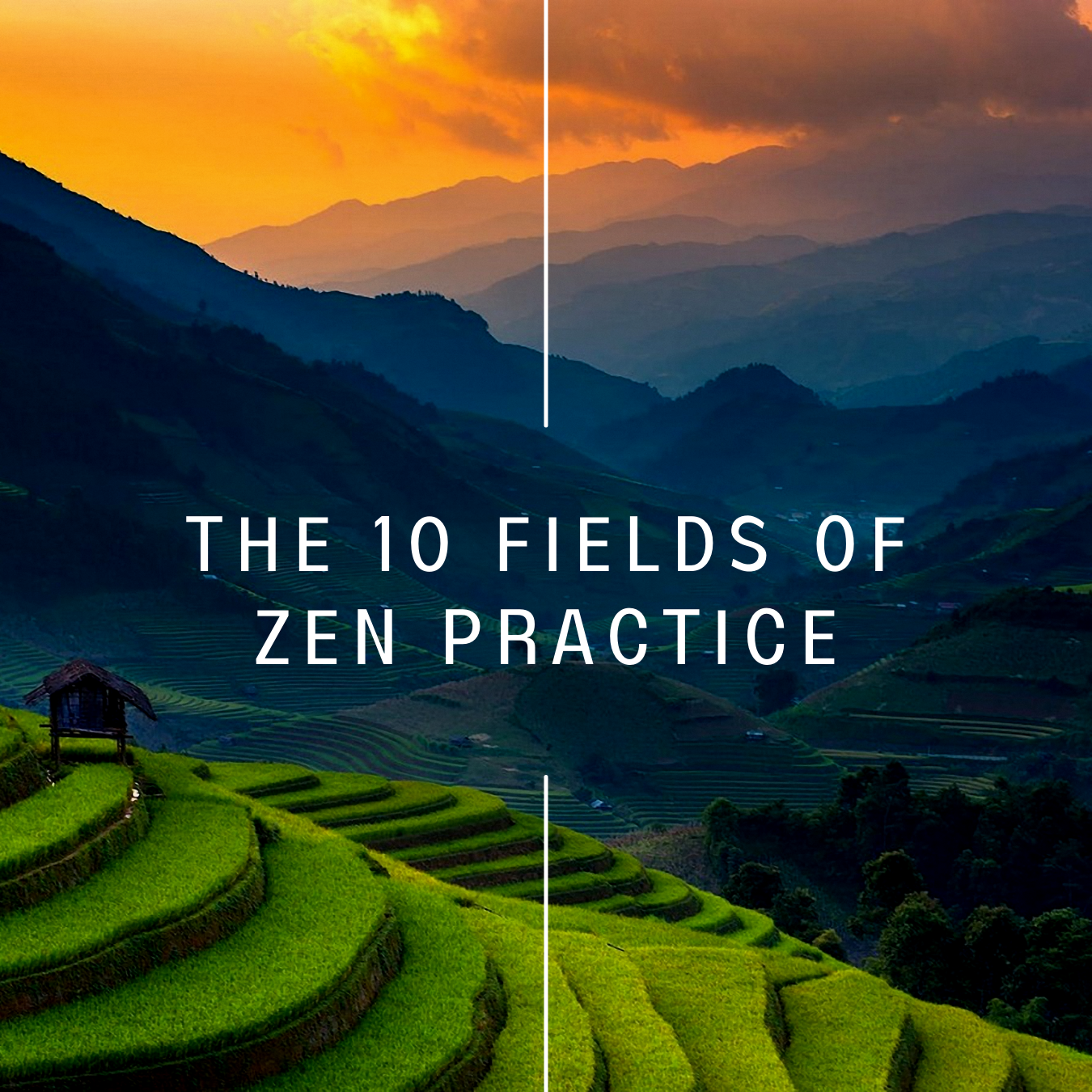
The Zen Studies Podcast270 - Ten Fields of Zen, Field Four - Dharma Study: Wrestling with the Teachings (1 of 2)The fourth Field of Zen practice is Dharma Study, or becoming familiar with and investigating Buddhist teachings. The texts and teachings in Buddhism include tools we can use for practice and inspirational guidance for our behavior, but the most critical part of Dharma Study is challenging the ideas and views we already hold, not acquiring new ones. The teachings describe Reality-with-a-Capital-R and invite us to investigate and verify the truth for ourselves. We don't seek to acquire insight into Reality for its own sake, but because it is liberating and transformative.
2024-05-2321 min
The Zen Studies PodcastMaking a Vow of Inner Nonviolence and Complete AcceptanceWe all have negative aspects of ourselves we want to fix, disown, or even expunge completely from our being, but even with practice some things are extremely hard to change. As we strive to break free of our less-than-helpful aspects of self, we typically employ violent means, ranging from subtle rejection to vicious and debilitating self-loathing that may even manifest physically. Regardless of the severity of the violence, it causes damage. Much more transformative than our typical approaches to change is making a vow of complete, unconditional, inner nonviolence and then working toward complete acceptance and integration.
2024-05-1535 min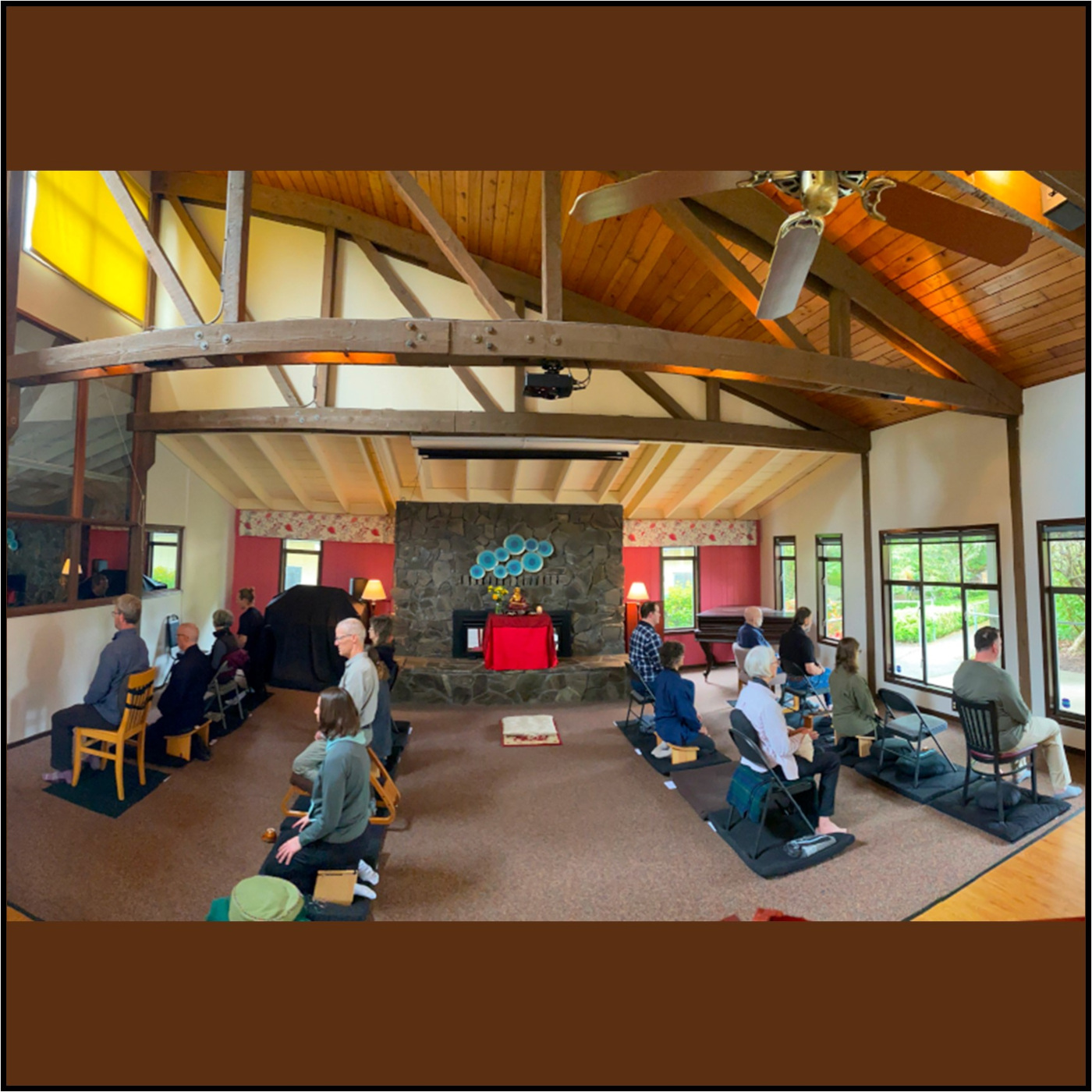
The Zen Studies PodcastTeisho, An Encouragement Talk During ZazenLast week I led a sesshin, or silent Zen retreat. Participants participated in a 24-hour schedule of zazen, chanting, silent work, formal meals, and rest. Once or twice a day, I offered a "teisho" during zazen. "Tei" means to offer or put forth, and "sho" means to recite or proclaim. Teisho are sometimes called "encouragement talks," and they are meant to help listeners connect with the Dharma in spaciousness and silence of zazen. Teisho are not about explanations or the imparting of information, and they generally not recorded. They are offered spontaneously, just for the moment, just for those...
2024-05-0129 min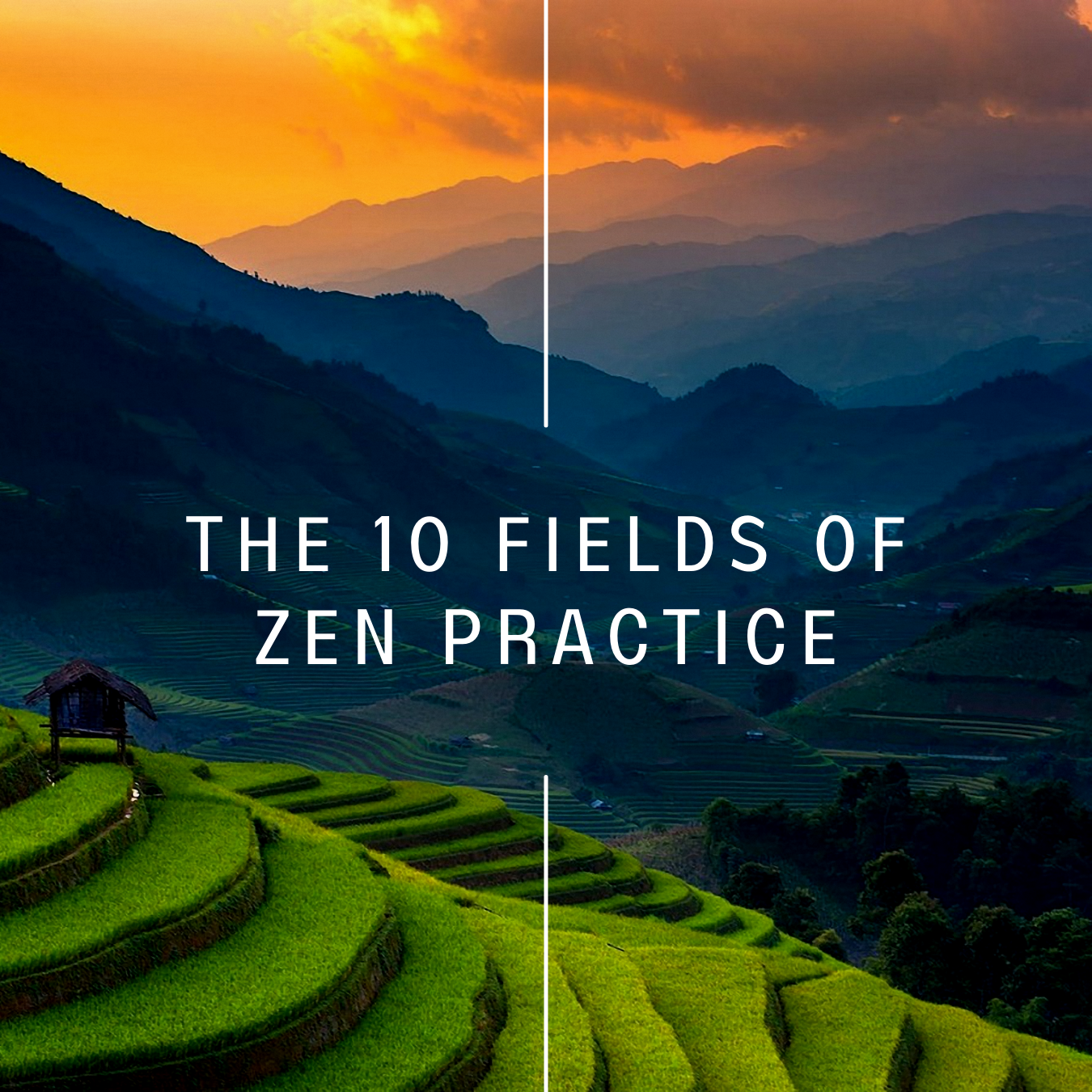
The Zen Studies Podcast267 - Ten Fields of Zen, Field Three - Mindfulness: Cultivating Awareness Every MomentThe third Field of Zen practice is Mindfulness, which is cultivating clear awareness of what is happening, moment by moment, within you and around you. Mindfulness is absolutely fundamental to Zen practice, allowing you to practice within all the other Fields. Without awareness, you can't live your life by choice instead of by karma.
2024-04-2228 min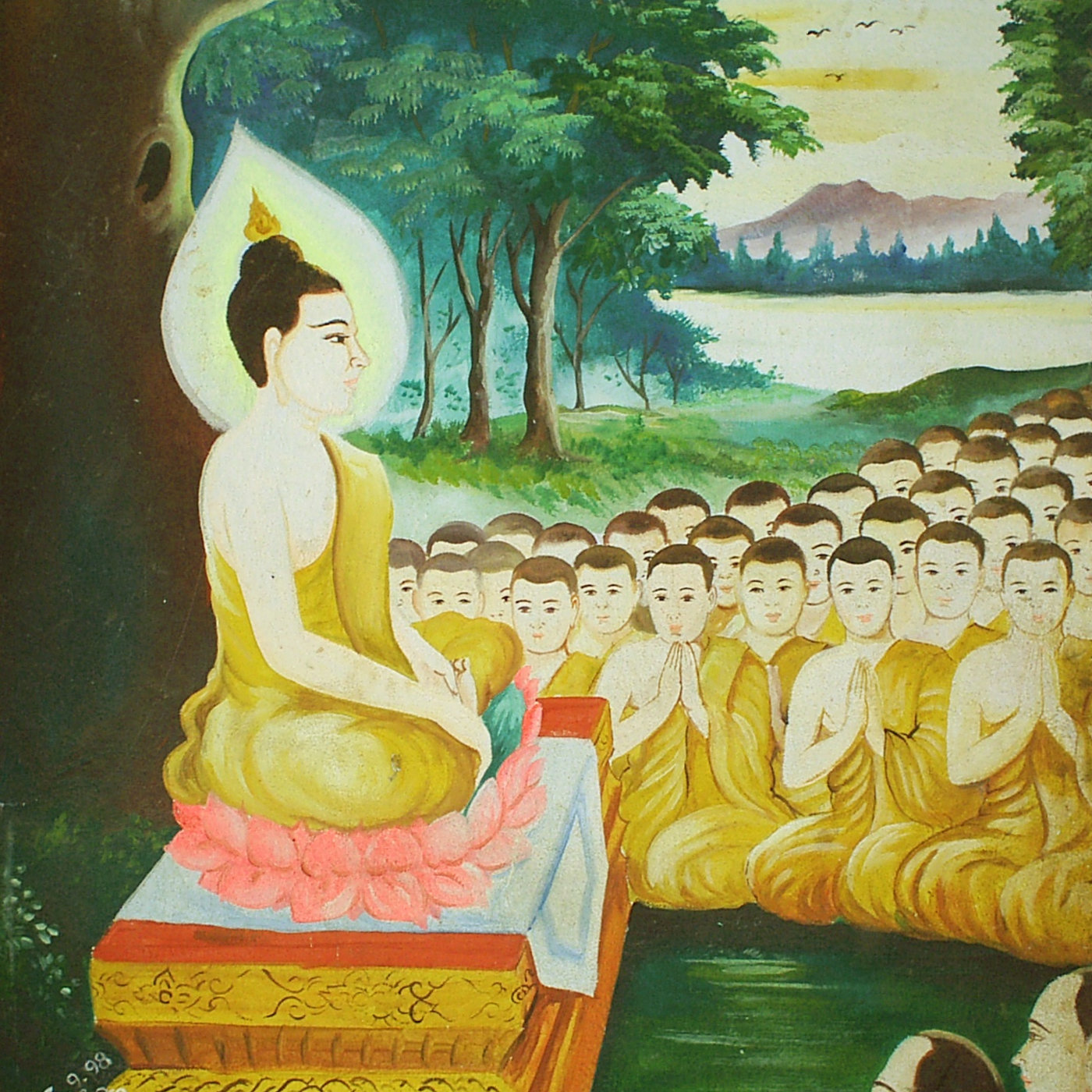
The Zen Studies PodcastWhat Would the Buddha Say About the Suffering in the World?Recently, someone submitted a Dharma question for me to address: "I wonder what Buddha would say to us about the crises facing humanity, particularly the suffering of our own making?" I can't know, but I dare to put some words in the Buddha's mouth and then present follow-up questions.
2024-04-1621 min
The Zen Studies Podcast265 - Ten Fields of Zen, Field Two - Zazen: Our Total Response to Life (3 of 3)This is the third episode of three comprising the "Zazen" chapter of my book, "The Ten Fields of Zen Practice: A Primer for Practitioners." I start by offering what I should have put at the beginning of my chapter on Zazen: Basic instructions for Zazen. I then discuss how my "Five Efforts in Zazen" suggest Zazen is a neat and linear process, but in actuality Zazen is a messy, organic, real-life experience. Finally, I talk about how to deepen your Zazen without getting caught up in self-centered striving.
2024-03-3022 min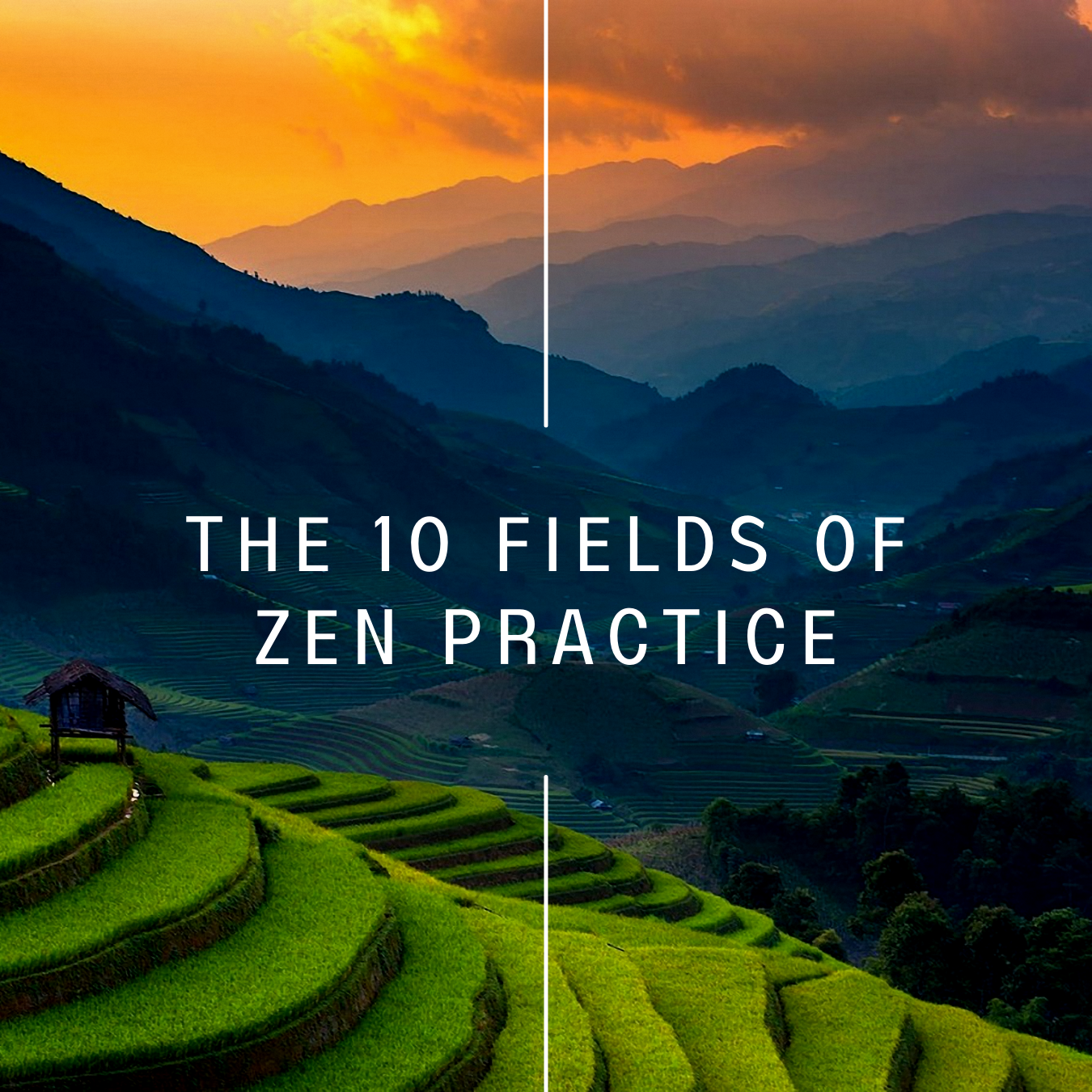
The Zen Studies Podcast264 - Ten Fields of Zen, Field Two - Zazen: Our Total Response to Life (2 of 3)This is the second episode of three comprising the "Zazen" chapter of my book, "The Ten Fields of Zen Practice: A Primer for Practitioners." I finish my discussion of the five efforts of Zazen, covering becoming intimate with Life, seeing the true nature of Life, and being one with Life.
2024-03-2631 min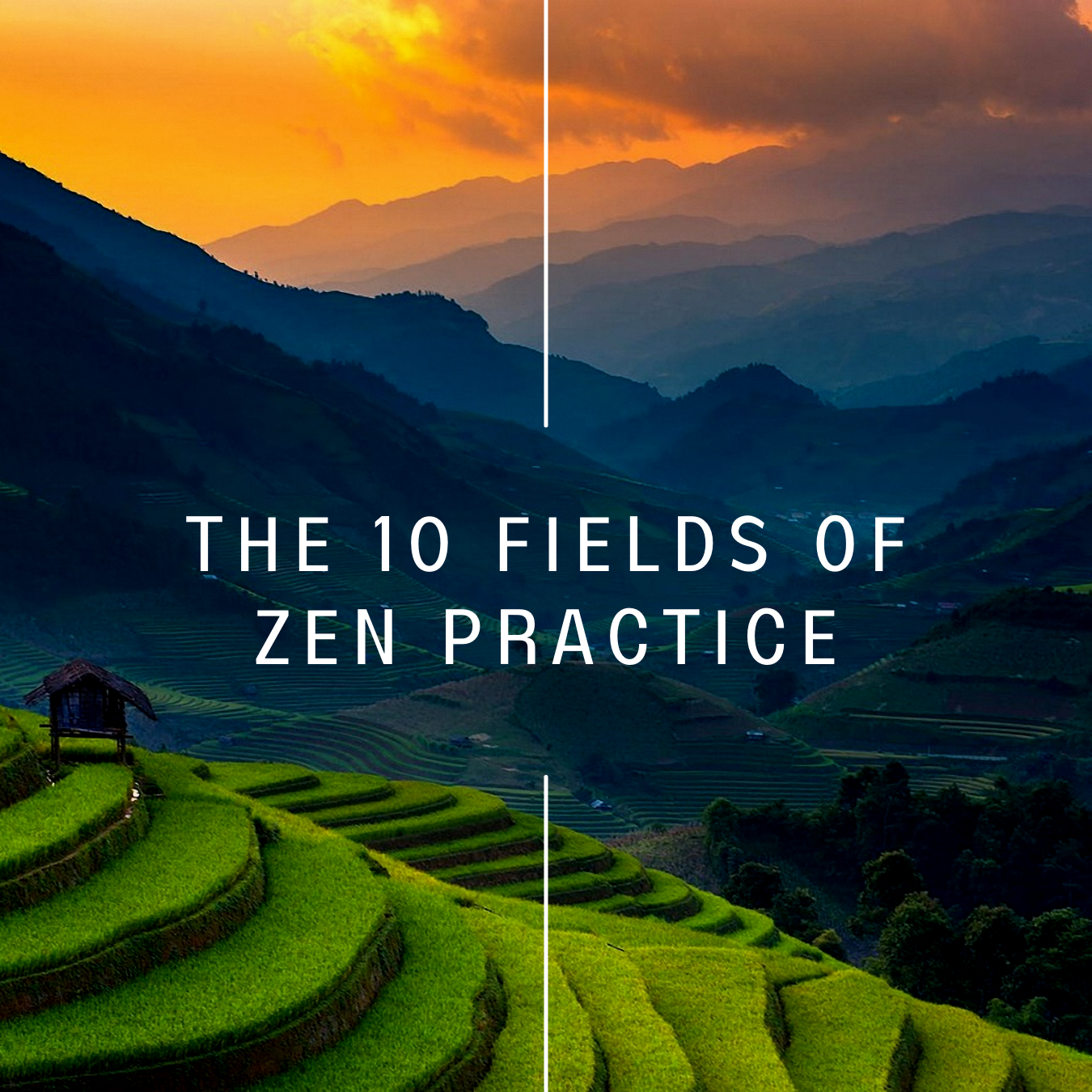
The Zen Studies Podcast263 - Ten Fields of Zen, Field Two - Zazen: Our Total Response to Life (1 of 3)The second Field of Zen practice is Zazen. "Za" means seated, and "zen" means meditation. However, as 13th-century Zen master Dogen famously stated, "…Zazen is not meditation practice." Superficially, our Zazen may look like the meditation done in other spiritual traditions, or even in secular settings. We even call Zazen "meditation" sometimes, for convenience. However, Zazen is not meditation in the sense of a mental exercise aimed at a particular result. Zazen is our total response to life. It is the essence and enactment of our entire Zen practice.
2024-03-1837 min
The Zen Studies Podcast262 - The Value, Care, and Feeding of Dharma Friendships (2 of 2)The Buddha famously said "admirable friendship," or what I'm calling Dharma friendship, is the entirety of the holy life. In the last episode, I discussed the value and nature of personal Dharma friendships. In this episode, I talk about what makes a good Dharma friendship and offer some practical ideas about how to find, form, and maintain such relationships.
2024-03-0129 min
The Zen Studies Podcast261 – The Value, Care, and Feeding of Dharma Friendships (1 of 2)The Buddha famously said the "admirable friendship," or what I'm calling Dharma friendship, is the entirety of the holy life. In this episode, I discuss the value and nature of personal Dharma friendships. In Part 2, I will talk about what makes a good Dharma friendship and offer some practical ideas about how to find, form, and maintain such relationships.
2024-02-2523 min
The Zen Studies Podcast260 – Ten Fields of Zen, Field One – Bodhicitta: Way-Seeking MindThis episode on Bodhicitta, or Way-Seeking Mind, is chapter two of my book The Ten Fields of Zen Practice: A Primer for Practitioners." Bodhicitta is the first Field of practice because without it we never even begin practice, and, if we don't nurture and sustain it, our practice will wither and die. I discuss the first arising of Bodhicitta, its function, how to cultivate it, and its profound nature.
2024-02-1733 min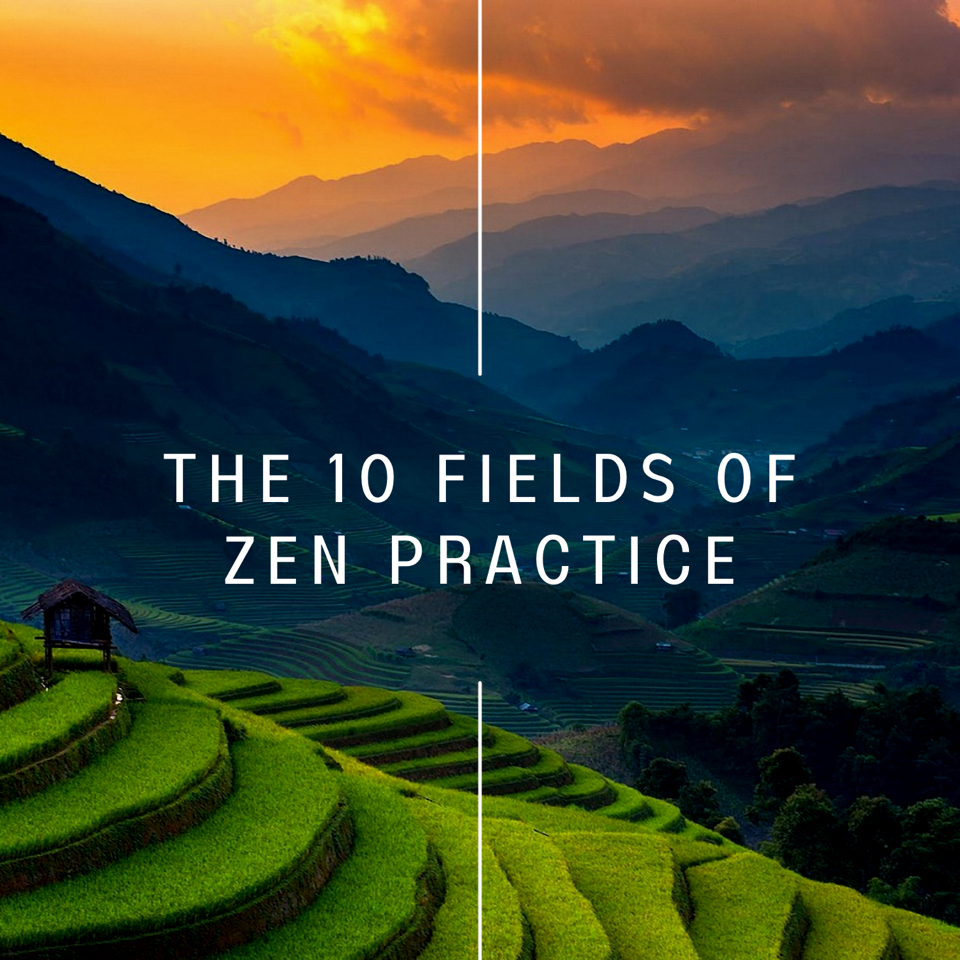
The Zen Studies Podcast259 – Ten Fields of Zen, Introduction – What Is Zen Practice?In this introductory chapter to my book, "The Ten Fields of Zen Practice: A Primer for Practitioners," I discuss the nature of practice and "progress" on the path of practice. I then introduce the Ten Fields, and the rest of the book will consist of a chapter on each of the Fields.
2024-02-0137 min
The Zen Studies PodcastOne Reality, Many Descriptions Part 6: The Two Truths of Absolute and Relative 2The Two Truths teaching is another classic Chan/Zen description of Reality-with-a-Capital-R. Reality has two aspects, often called relative and absolute. I call them the "dependent dimension" and the "independent dimension." I describe this teaching and discuss why it is so important to our practice.
2024-01-0926 min
The Zen Studies PodcastOne Reality, Many Descriptions Part 5: Awakening & the Independent Dimension: The Two Truths of Absolute and Relative – Part 1The Two Truths teaching is another classic Chan/Zen description of Reality-with-a-Capital-R. Reality has two aspects, often called relative and absolute. I call them the "dependent dimension" and the "independent dimension." I describe this teaching and discuss why it is so important to our practice.
2023-12-3125 min
The Zen Studies Podcast256 - Do Your Own Practice: Spiritual Translation Versus TransformationOne way to frame our practice is to say it has a "translation" aspect and a "transformation" aspect. Translation means to apply Buddhist teachings and practice to our life to free self and other from suffering, and live with greater wisdom and compassion. Transformation means to seek transcendence of the self and all of its limited views through a relentless process of inquiry, for the sake of an even more profound and stable liberation. I discuss how each aspect is valuable, how they differ, and clarifying what you want out of your own spiritual path.
2023-12-1731 min
The Zen Studies PodcastThe Medicine of Emptiness When Witnessing Suffering and InjusticeWhen we witness - or experience - suffering or injustice, the medicine of emptiness can give us strength and equanimity. It should also increase our compassion, allowing us to be open, sensitive, and responsive without getting overwhelmed by anxiety, depression, fear, anger, or hatred. I talk about what the "medicine of emptiness" is - and isn't - and how to access it.
2023-12-0235 min
The Zen Studies PodcastPractice is How You Live Each and Every Moment – Part 2Everyday life gives us countless opportunities for "awakening work." I discuss ways to practice each and every moment in order to awaken to the truth of Dukkha and the ending of Dukkha, and to the truth Emptiness. In Part 3 I will talk about how we can similarly work on a direct, personal experiences of Suchness, Buddha-Nature, and the Two Truths (absolute and relative) in the midst of our daily lives.
2023-11-2536 min
The Zen Studies Podcast253 - Practice is How You Live Each and Every Moment – Part 1The formal aspects of Buddhist practice – the things you can look at and identify as "Buddhist practice" – are very important. These include meditation, Dharma study, and time with Sangha. However, unless you're a monk in a really strict monastery, over 90% of your time is spent outside of formal practice. It's important to remember that practice each and every moment – how we choose to live our life, just as it is – is the most important thing.
2023-11-1631 min
The Zen Studies PodcastReflections on Dogen's "Bussho, The Buddha-Nature" Part 2: Total ExistenceIn my second episode reflecting on Dogen's "Bussho," or "The Buddha-Nature," I discuss how Buddha-Nature is a teaching about our existential koan as human beings. I also talk about how Dogen says we have already got Buddha-Nature, and then explore more fully his teaching about "Total Existence."
2023-10-3127 min
The Zen Studies PodcastReflections on Dogen's "Bussho, The Buddha-Nature" Part 1: BeingIn his essay "Bussho," or "The Buddha-Nature," Dogen explores and expands a classic Mahayana Buddhist teaching. I reflect on a few central concepts from the first paragraph.
2023-10-2828 min
The Zen Studies PodcastIn Zazen We Stop Imposing Ourselves on the World and Meet It InsteadIn zazen we stop imposing ourselves on the world either through our habitual thinking or through any effort to control or judge our meditative experience. Only then can we meet the world us it is unfolding around, within, and through us - but this meeting requires energy and participation. This episode addresses the two essential aspects of zazen practice: What we are not doing, and what we are doing. Both are equally important and both are easily misunderstood.
2023-10-1531 min
The Zen Studies PodcastAre the Buddha's Teachings on Renunciation Relevant for Householders? – Part 2In this second half of a two-episode discussion, I briefly review the limitations of sensual or worldly pleasures. Then I explore how engagement with the world, contrary to simply being a compromise, can be its own path of practice. Finally, I talk about how the Buddha's teachings on renunciation are not only relevant but deeply meaningful and useful for householders.
2023-10-0132 min
The Zen Studies PodcastAre the Buddha's Teachings on Renunciation Relevant for Householders? – Part 1The Buddha was pretty clear. If you wanted to experience complete liberation, it was best practice renunciation - to leave all worldly things behind: Family, sex, alcohol, fancy food, music, entertainment, frivolity, etc. Why did the Buddha recommend this? Why do fully ordained Buddhist monks and nuns still live this way? Are the Buddha's teachings on renunciation relevant for householders?
2023-09-2827 min
The Zen Studies PodcastSangha Challenges: How and Why to Open Up to the Treasure of Sangha – Part 3In Part 3 of my "Sangha Challenges" discussion, I finish my list of reasons you may resist joining a Buddhist community or find it challenging to maintain your relationship with one over time. I present each challenge as an opportunity for growth and learning.
2023-09-1641 min
The Zen Studies PodcastTwo Episodes Recommended by ListenersThis is my third and final post during my 2023 sabbatical month. I'll be back soon with a full episode, but in the meantime I wanted to share two past episodes with you that multiple listeners have said were important to them.
2023-09-0102 min
The Zen Studies PodcastRecommended Episodes on ZazenHere again with recommended episodes for you to listen to while I'm on my August sabbatical from Zen teaching and writing. Your chosen form of meditation may be what I call "Directed Effort" meditation, or "Letting Go" meditation (I discuss Directed Effort versus letting go in Episodes 83 and 84: Two Paths to Meditative Concentration: Directed Effort Versus Letting Go – Part 1 and Part 2). In either case, you may find some useful tips in Episodes 184 and 185: 14 Ways to Enliven Your Zazen. When my zazen gets dull, lazy, restless, or distracted, these are the ways I try to engage my meditation more wholeheartedly.
2023-08-2602 min
The Zen Studies PodcastAnnouncement and Recommendation I take a sabbatical from my Zen teaching one month a year, and this year it's in August. In this announcement I explain (and thank you for your patience), and recommend one of my 236 past episodes to listen to (published six years ago!).
2023-08-1702 min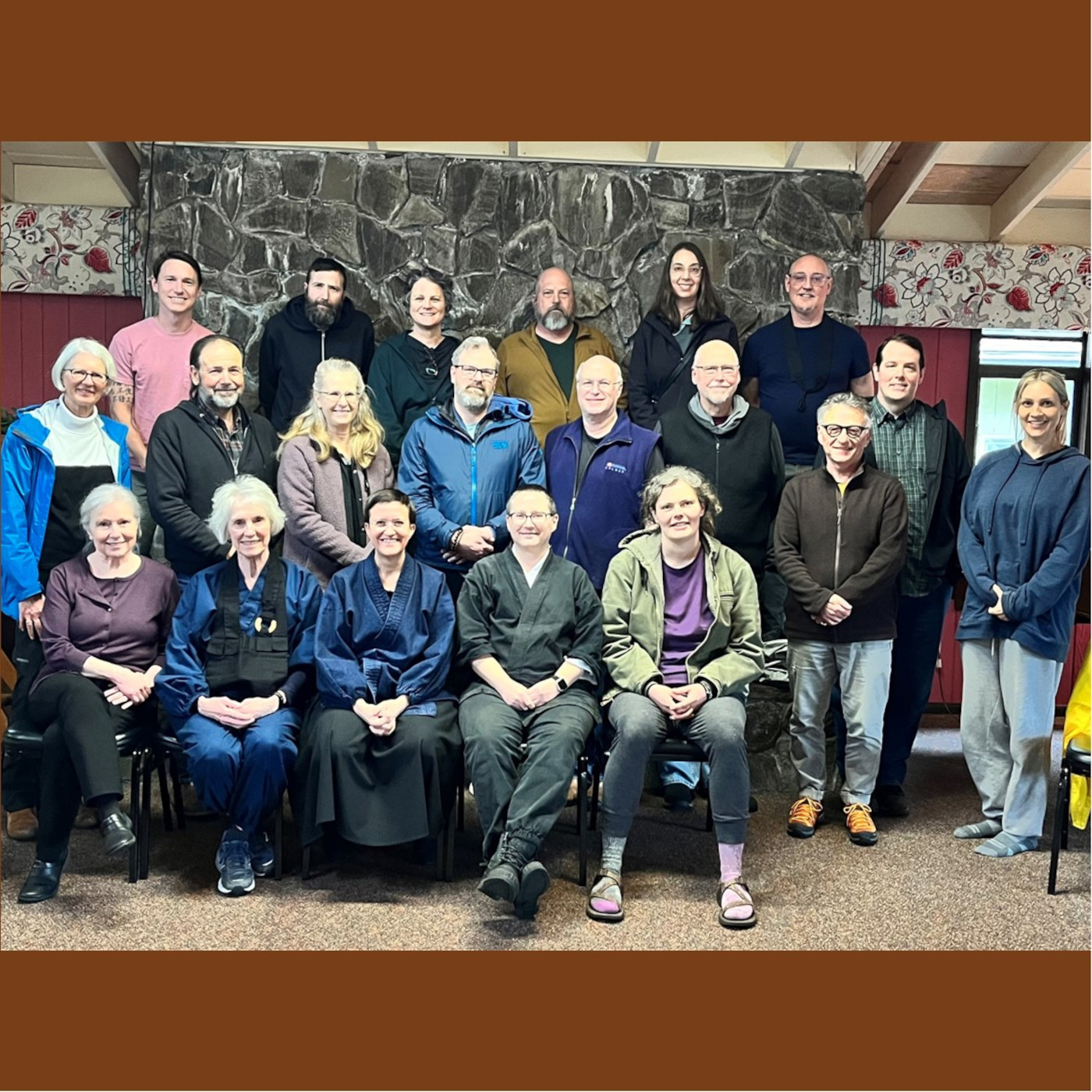
The Zen Studies Podcast246 - Sangha Challenges: How and Why to Open Up to the Treasure of Sangha – Part 2In Part 2 of my "Sangha Challenges" discussion, I talk about various reasons you may resist joining a Buddhist community or find it challenging to maintain your relationship with one over time. I present each challenge as an opportunity for growth and learning. I will finish up my list of challenges in the next episode, Part 3.
2023-08-0125 min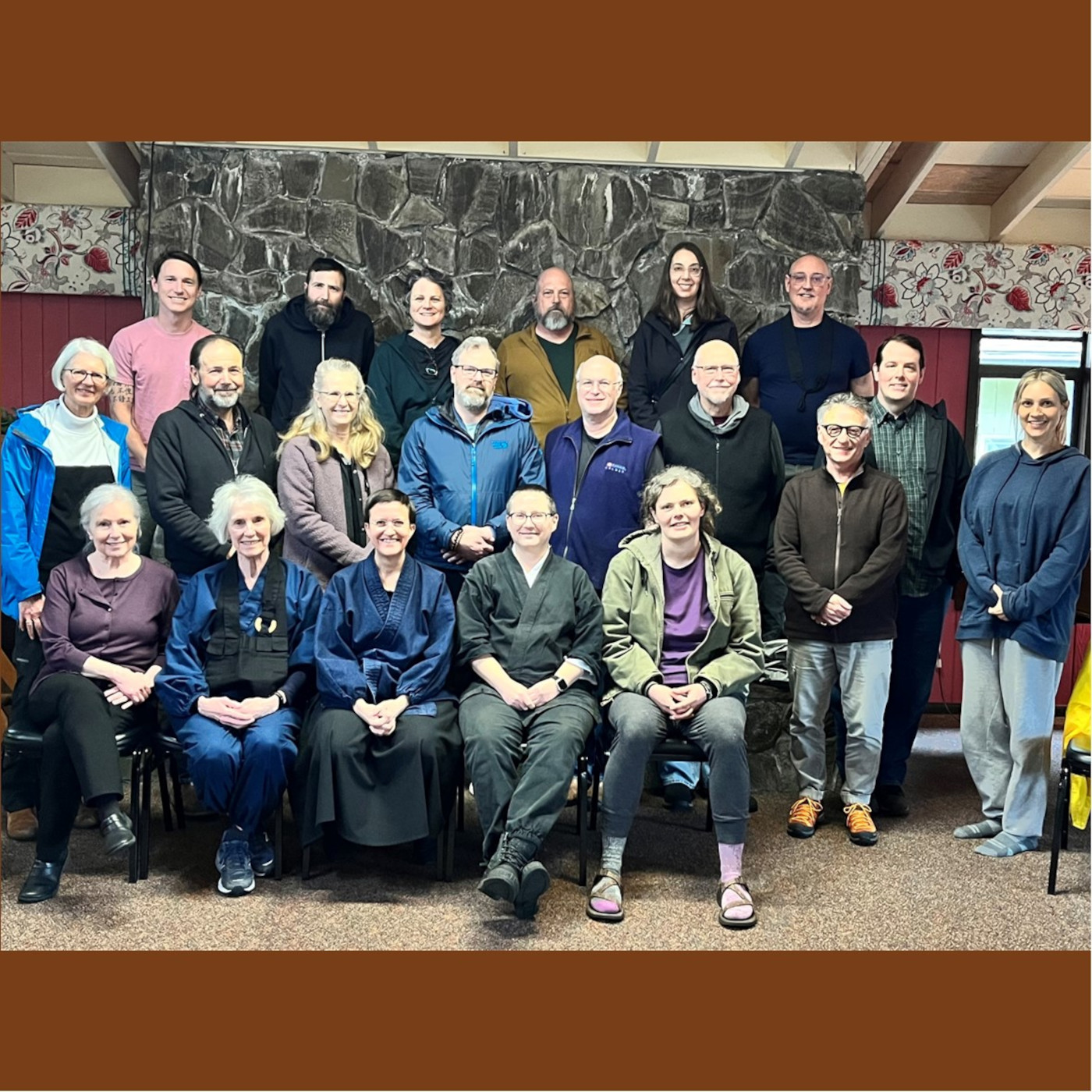
The Zen Studies Podcast245 - Sangha Challenges: How and Why to Open Up to the Treasure of Sangha – Part 1Should you join a Sangha? Sangha, or community, is one of the "Three Treasures" of Buddhism, but is it really necessary? How important is it? There are many "Sangha Challenges" - reasons you might feel resistance to joining a community, or difficulties you might face as you practice with one. I discuss ways to relate to various Sangha challenges as opportunities for practice and growth.
2023-07-2823 min
The Zen Studies PodcastZazen as a Religious ActSeated Zen meditation – zazen – is less like the meditative practices of many other spiritual traditions, and more like prayer in theistic traditions. This is not because we believe in God (although we might), but because zazen can be seen as a "religious" act – if we define religion in one of the ways philosopher William James offered, as "our total response to life."
2023-07-1730 min
The Zen Studies Podcast243 - The Buddha's Life Story as Archetype and TeachingUnderstanding the teachings of Buddhism starts with becoming familiar with the Buddha's life story. This isn't because he is believed to have been divine, or even a prophet. Instead, his story is important because it serves as an archetype for the Buddhist vision of spiritual seeking and development. There are many teachings embedded in the story of the Buddha, who is regarded as having been a remarkable human being – but just a human being, like you or me.
2023-07-0138 min
The Zen Studies PodcastReflections on Sansuikyo, Dogen's Mountains and Waters SutraOne of Zen master Dogen's most beloved writings is a relatively short essay called "Sansuikyo," or the Mountains and Waters Sutra. In this episode, I reflect on two aspects this work: The statement that mountains and waters are, in of themselves, words of the Buddha, and the fantastic imagery of "mountains walking." I only cover a few paragraphs of the Sansuikyo, but it is enough to open up a profound spiritual inquiry.
2023-06-2427 min
The Zen Studies PodcastWhat Does It Mean to Waste Time?Buddhist and Zen masters through the ages have begged us not to "waste time." What does this really mean? How do we know if we're wasting time, and does it really matter?
2023-06-1638 min
The Zen Studies Podcast240 – One Reality, Many Descriptions Part 4: Buddha-Nature 2This is part four of my series called "One Reality, Many Descriptions," Buddha-Nature Part 2. I first talk about Buddha-Nature as trust. Then I offer the requisite discussions of what Buddha-Nature is not, and how it is necessary for us to awaken to our own Buddha-Nature in order to fully partake of the associated joy, redemption, and faith.
2023-05-3125 min
The Zen Studies PodcastOne Reality, Many Descriptions Part 3: Buddha-Nature 1This is part three of my series called "One Reality, Many Descriptions." While experiences of Emptiness and Suchness (or Thusness) may be liberating and transformative, we may be left with the question of how our limited, embodied existence relates to these profound truths. Our natural inclination toward self-preservation, our appetites and shortcomings, our ingrained habits, our complacency – these things can seem at odds with the greater Reality we have started to perceive. The teaching of Buddha-Nature points to the marvelous and redemptive fact that we too – just as we are – are Thus: Luminous and miraculous in and of ourselves.
2023-05-2827 min
The Zen Studies PodcastEco-Anxiety and Buddhism – Part 2It's natural to feel some eco-anxiety as the earth's natural life-support systems break down. Buddhism clearly admonishes us to refrain from killing, to actively care for all life, and see ourselves as being in the "same boat" with all beings. In what ways can our practice help us stay strong, and how can it help us respond to our climate and ecological crisis in a way that's consistent with our Buddhist values?
2023-05-1334 min
The Zen Studies PodcastEco-Anxiety and Buddhism – Part 1Eco-anxiety is fear that our earth's natural life-support systems are in the process of a collapse that will be catastrophic to life as we know it. This fear may range in intensity between a vague, pervasive sense of worry to a debilitating condition. What does Buddhism have to say about eco-anxiety, and what does it offer us if we want to be responsible citizens and true to our aspirations as Buddhists – but we also want to avoid being overwhelmed with fear, despair, or a sense of powerlessness?
2023-04-2937 min
The Zen Studies PodcastSpiritual Inquiry Part 5: Koans and AwakeningAwakening Inquiry is aimed at awakening to what I've been calling Reality-with-a-Capital-R. How do we inquire into aspects of Reality we have not yet even imagined? How do we even know what we don't know? How can we see what we have not yet seen? How do we even know where to look? In Zen, we do this through the use of koans, whether those are traditional koans or natural ones. I discuss the nature of awakening inquiry and how to find koans to focus your practice.
2023-04-1938 min
The Zen Studies Podcast235 – One Reality, Many Descriptions Part 2: Suchness or ThusnessWhat do Buddhists mean by the terms "Suchness" or "Thusness"? Over the millennia, Buddhists have employed many concepts to point us toward Reality-with-a-Capital-R, because awakening to Reality is profoundly liberating. This series of episodes discusses five classic descriptions of Reality. In Episode 229 I talked about the first of these, Emptiness (One Reality, Many Descriptions Part 1: Emptiness). In this episode I explore Suchness, or Thusness.
2023-04-1238 min
The Zen Studies Podcast234 – Spiritual Inquiry Part 4: Investigating and Resolving Karmic IssuesIn the last episode I discussed "karma work," or the process of noticing the underlying reasons for our selfish, harmful, or less-than-enlightened behaviors of body, speech, and mind, and then working to resolve them. I talked about how to identify our karmic issues. In this episode I discuss what to do once you've identified a karmic issue you'd like to work on, taking you through the process of delving into the underlying causes of your negative karmic patterns, and then finding greater freedom through insight and through habit change.
2023-03-3125 min
The Zen Studies PodcastSpiritual Inquiry Part 3: Identifying our Karmic IssuesAn important part of Buddhist practice is spiritual inquiry. Buddhism teaches us that there are underlying reasons for every selfish and neurotic thing we do, and that we can discern what those reasons are and work on them. This karma work can lead to lasting and transformative change. In this episode I describe karma work and discuss how to identify your karmic issues. In the next episode I will talk about the process of karmic inquiry once you have identified a karmic issue you would like to resolve.
2023-03-1823 min
The Zen Studies Podcast232 – Spiritual Inquiry Part 2: Resistance to Questions and Karma Work Versus AwakeningIn this episode, my second in a short series on spiritual questions, I talk about various reasons for resistance to coming up with or asking spiritual questions. Then I discuss the relationship between karma work and awakening, because in my next episode or two I'll explore in depth how to come up with karmic questions, and then how to come up with awakening questions.
2023-03-0619 min
The Zen Studies Podcast231 – Spiritual Inquiry Part 1: What Spiritual Questions Are and Why They MatterThere are many aspects of Buddhism which suggest you ought to have deep spiritual questions – questions which are not merely intellectual, but which matter to you, personally, very much. Questions which bother you so much that you are driven to seek answers in the hope that they will bring peace of mind, or reveal better ways to think or behave, better ways to live your precious life. How can you come up with meaningful spiritual questions, or choose which of your many questions you should focus on?
2023-02-2729 min
The Zen Studies PodcastThe Importance of Bodhi-Mind, or Way-Seeking MindBuddhism is based on seeking – seeking freedom from suffering, greater wisdom and compassion, greater skillfulness in benefiting beings, and a more authentic, connected way of being. Our spiritual growth depends on arousing and sustaining "Bodhi-Mind," or the "Way-Seeking Mind," which in turn generates questions, curiosity, energy, and determination. How do we arouse our Way-Seeking Mind and thereby give direction and inspiration to our practice?
2023-02-1535 min
The Zen Studies PodcastOne Reality, Many Descriptions Part 1: EmptinessTeachings like Emptiness, Buddha-Nature, Suchness, Absolute and Relative, and Mind-with-a-capital-M are challenging, and sometimes people wonder if they're all just terms for the same thing, more or less, or whether they're part of a long list of difficult-to-comprehend concepts we need to master as Buddhists. It may be helpful to realize that each of these classic Buddhist concepts describes Reality-with-a-capital-R, and there's only one Reality. The concepts, therefore, are intimately related to one another, and each one emphasizes different aspects of Reality in a very useful way. In this episode I discuss Buddhist descriptions of Reality in general, and...
2023-01-3146 min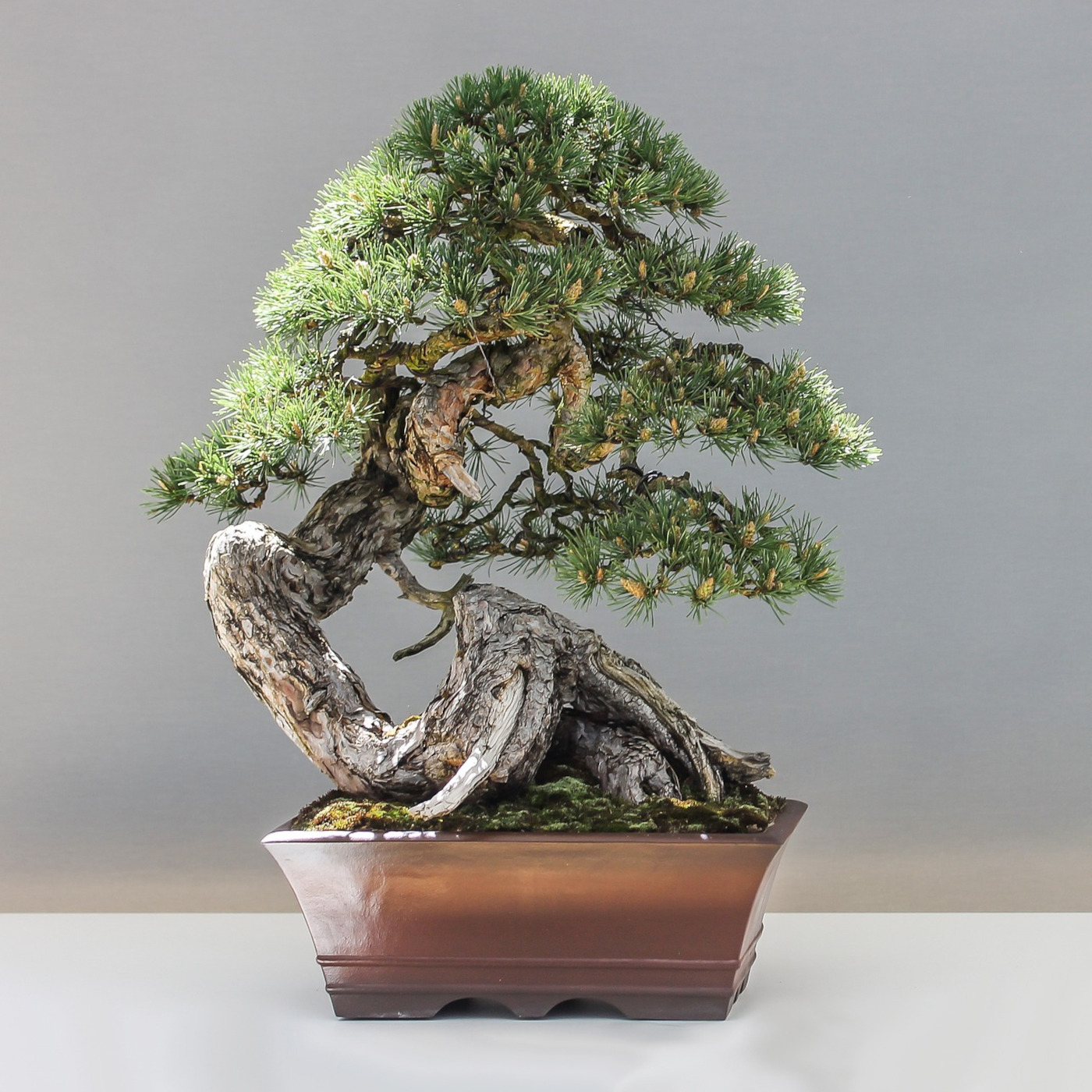
The Zen Studies PodcastSkillful Self-Discipline Part 2: Clarity of Purpose and Patient DeterminationIf we live without self-discipline – without clarifying aspirations, forming intentions, or training ourselves – our lives are unlikely to go in the direction we would like them to. Unfortunately, self-discipline is notoriously difficult! In the last episode I discussed the importance of self-discipline and some of the mistakes we make when applying it. In this episode I talk about what skillful self-discipline looks like.
2023-01-1931 min
The Zen Studies PodcastSkillful Self-Discipline Part 1: Balancing Discipline and GentlenessIf we live without self-discipline – without clarifying aspirations, forming intentions, or training ourselves – our lives are unlikely to go in the direction we would like them to. Unfortunately, self-discipline is notoriously difficult! In this episode I will discuss the importance of self-discipline and some of the mistakes we make when applying it. In the next episode (Part 2), I'll talk about what skillful self-discipline looks like.
2023-01-0925 min
The Zen Studies PodcastHow to Relate to Worldly Pleasure as a Buddhist – Part 2In Part 1 I defined what I mean by "worldly pleasure," and then discussed five drawbacks of such pleasure as described in Buddhist teachings, and in our own experience. In this episode I talk about how - if we can engage worldly things with the mind that sees impermanence - we are not only inoculated against the many usual drawbacks of worldly pleasures, we can use every encounter we have with the world as an opportunity to practice deeply. Not only that, we actually end up engaging worldly pleasures with more appreciation and awareness.
2022-12-2520 min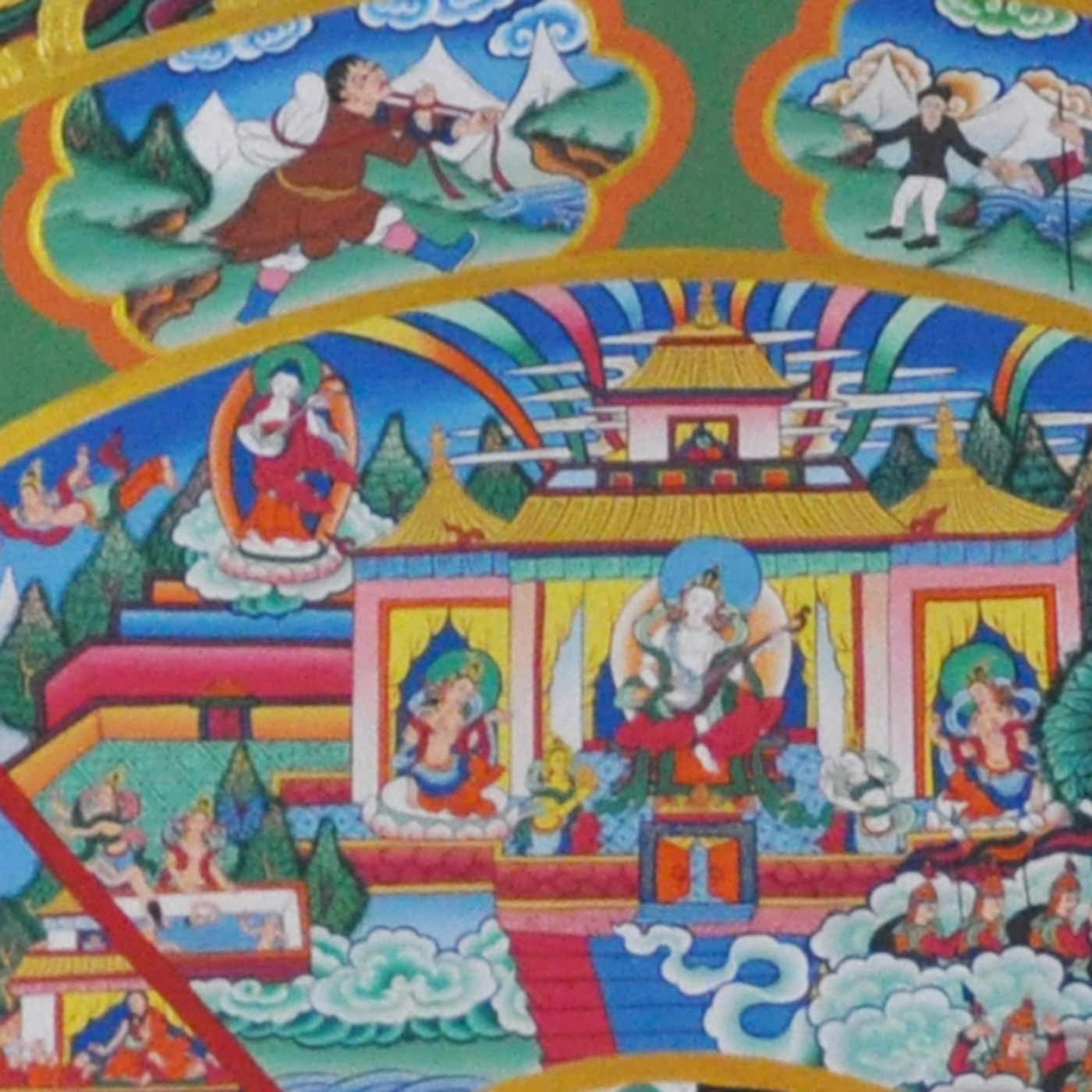
The Zen Studies PodcastHow to Relate to Worldly Pleasure as a Buddhist – Part 1Traditionally, the ideal of Buddhism is the renunciate monastic who forgoes worldly pleasures because they are fleeting and distract us from practice. How should a serious practitioner relate to worldly pleasures if they're not living a renunciate lifestyle? Is it possible to fully enjoy the pleasures in our lives while maintaining a strong Buddhist practice, or are we fooling ourselves when we try to do so? In this episode I define what I mean by "worldly pleasure," and then discuss five drawbacks of such pleasure as described in Buddhist teachings, and in our own experience.
2022-12-2522 min
The Zen Studies PodcastHuman Nature: Why Aren't We Born Enlightened?Why aren't we just all born enlightened and avoid suffering? Or, we could ask: Why are human beings the way they are? Why did they evolve to cause so much suffering for themselves and others? If we all have Buddha-Nature, why isn't that manifest from the beginning, and why does it get obscured so completely? Why is practice so hard if, as the teachings say, we have everything we need from the beginning?
2022-12-1629 min
The Zen Studies PodcastIntegrating InsightsOn the meditation seat and off, we may experience significant insights - realizations that shift our perceptions of ourselves and world, and help relieve suffering. Insights may be sudden or gradual, major or minor, but we naturally want to be able to hold on them instead of forgetting them and going back to our previous way of thinking or being. Yet sometimes these insights seem to slip away or fade with time. Our effort to hold on to them sometimes causes them to recede even further. How can we integrate insights into our lives and practice?
2022-12-0124 min
The Zen Studies Podcast222 – Confronting the Buddha's Sexist Discourse – Part 2I explore how - for some of us - explaining, dismissing, or justifying the story of the Buddha's resistance to ordaining women (told in the Gotami Sutta) does not completely neutralize the discouraging effect of this story's presence in the Buddhist canon. I then discuss how we can relate to this story without losing our faith in Buddhism as a path of practice.
2022-11-2328 min
The Zen Studies PodcastConfronting the Buddha's Sexist Discourse – Part 1I introduce the text that describes the Buddha's negative words and actions in response to the question of ordaining women into what was called the "homeless life" of his monastic community. Then I'll talk about various ways we can explain, dismiss, or justify the story contained in this text. In the next episode I'll explore how, for some of us, explaining, dismissing, or justifying the story of the Buddha's sexist discourse does not completely neutralize the discouraging effect of this story's presence in the Buddhist canon, and how we can relate to the story without losing our faith in...
2022-11-1630 min
The Zen Studies PodcastBeing the Only Buddhist in Your Family – Part 2This is Part 2 of my discussion about being the only Buddhist in your family. I continue discussing ways to create more harmony between your spiritual practice and your family relationships, and then talk about the special case of being in an intimate relationship with someone who doesn't share your passion for Buddhist practice.
2022-10-2933 min
The Zen Studies PodcastBeing the Only Buddhist in Your Family – Part 1Many – if not most – English (or Spanish!)-speaking Buddhists are converts to Buddhism. Even if you were raised in a Buddhist family, chances are good that as an adult you are surrounded by non-Buddhists, or that as an active Buddhist practitioner you are surrounded by people for whom Buddhism is largely a cultural matter. I discuss the challenges of being the only Buddhist in your family or intimate relationship, and ways to create more harmony between your spiritual practice and your close relationships.
2022-10-2122 min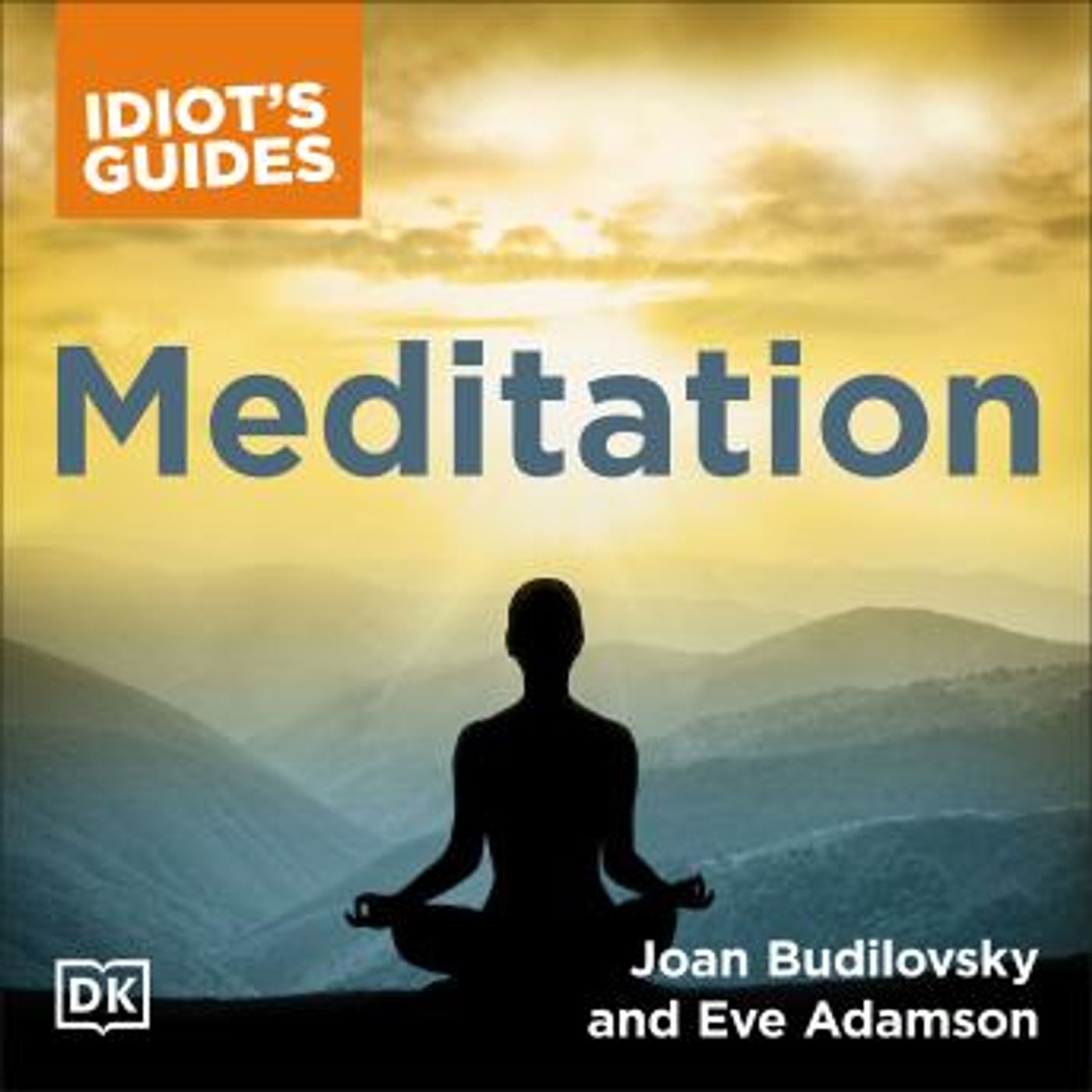
Full Audiobooks in Self-Improvement, Improve Your MindsetThe Complete Idiot's Guide to Meditation: How to Heal Through the Mind/Body Connection by Joan Budilovsky, Domyo Sater Burk, Eve AdamsonPlease visit https://thebookvoice.com/podcasts/1/audiobook/414208 to listen full audiobooks. Title: The Complete Idiot's Guide to Meditation: How to Heal Through the Mind/Body Connection Author: Joan Budilovsky, Domyo Sater Burk, Eve Adamson Narrator: Olivia Dowd Format: Unabridged Audiobook Length: 15 hours 18 minutes Release date: February 13, 2020 Ratings: Ratings of Book: 3.5 of Total 2 Genres: Improve Your Mindset Publisher's Summary: In today's hectic times, it's more important than ever to learn to slow down, relax and be calm. Whether part of religious habit or just part of a daily routine, meditation can help slow today's frenzied pace and improve feelings of good...
2020-02-1305 min
The Zen Studies PodcastLabor Day MessageI won't be releasing a new episode today, in honor of Labor Day weekend. I will release one next week! Take care, Domyo
2017-09-0100 min